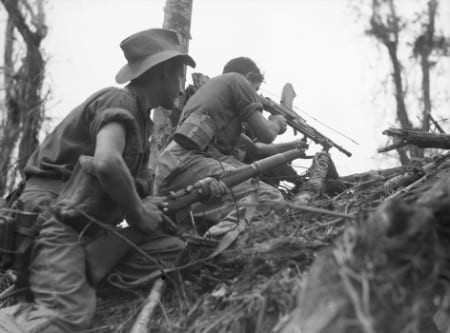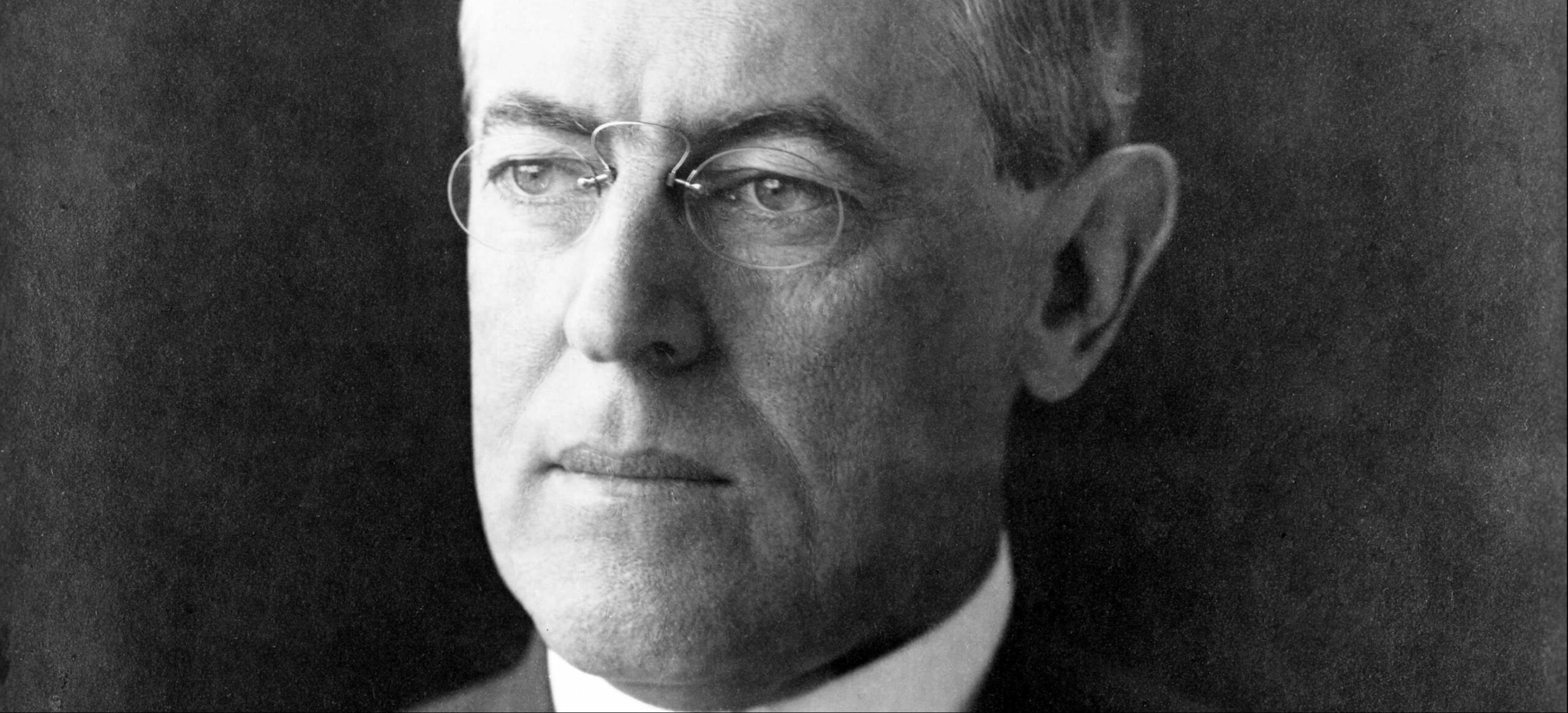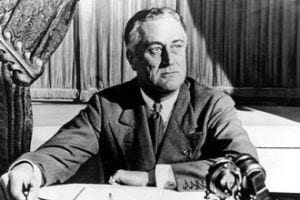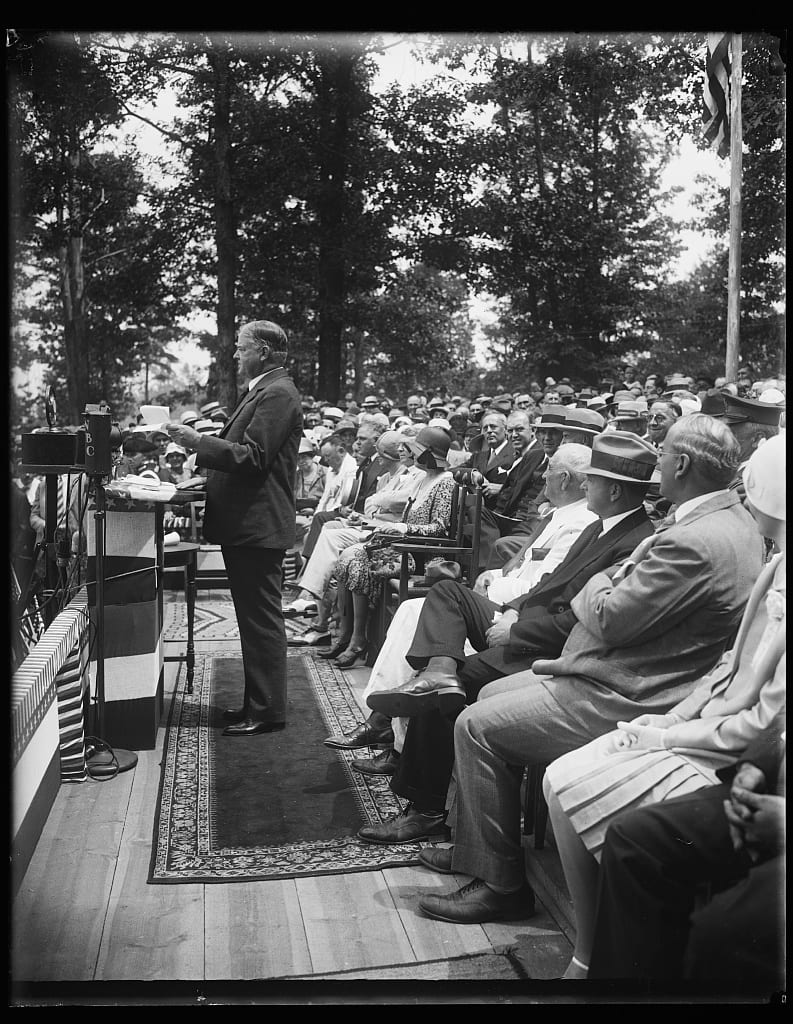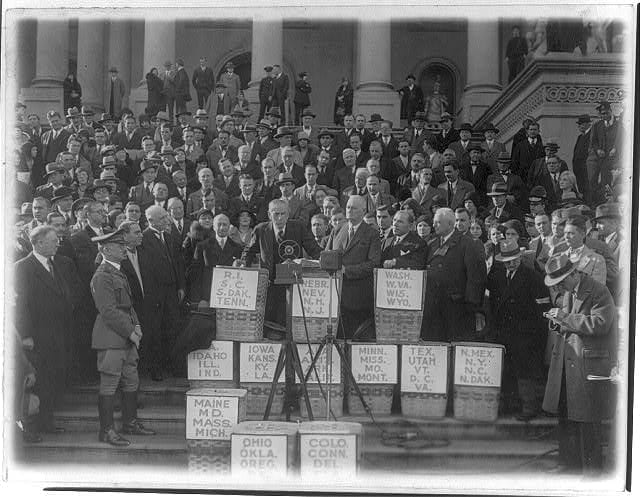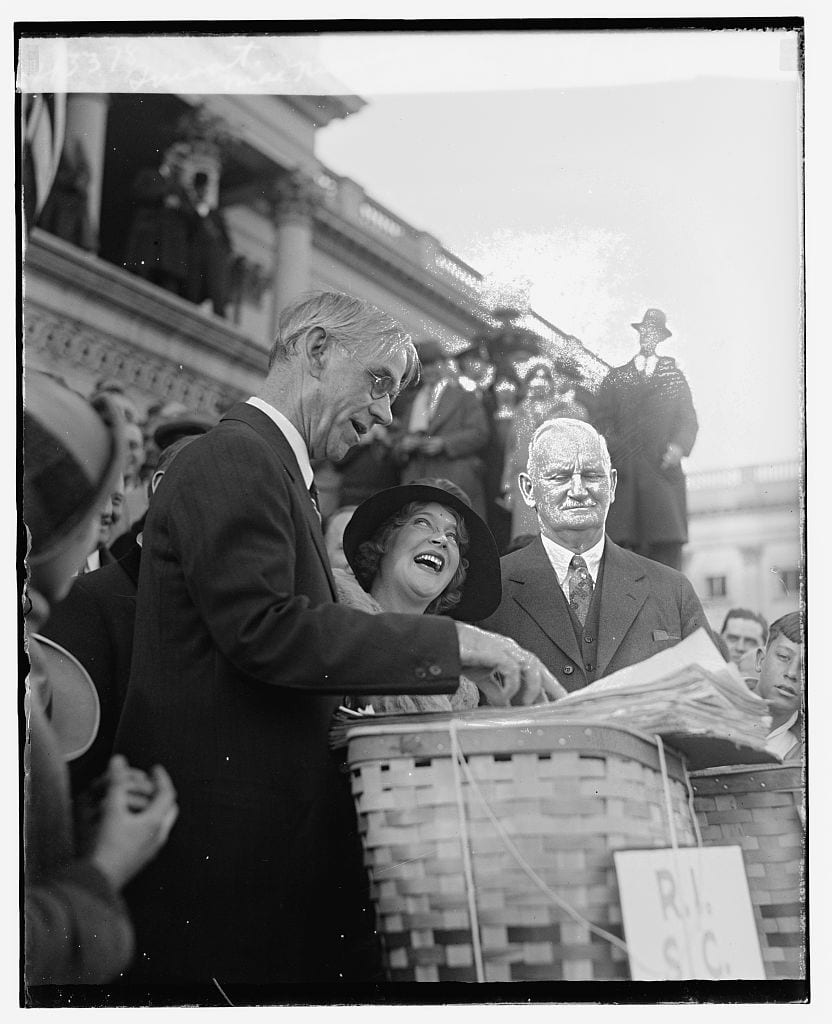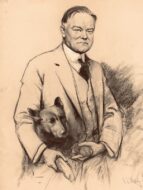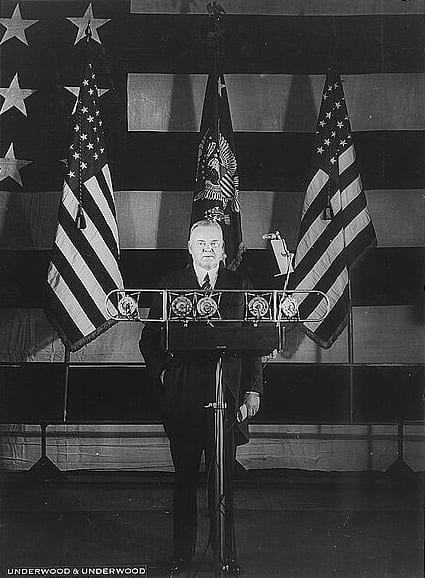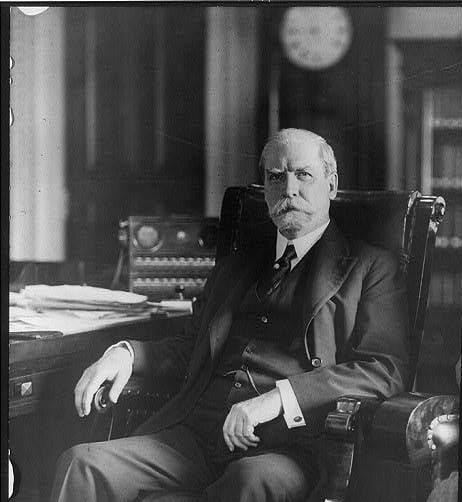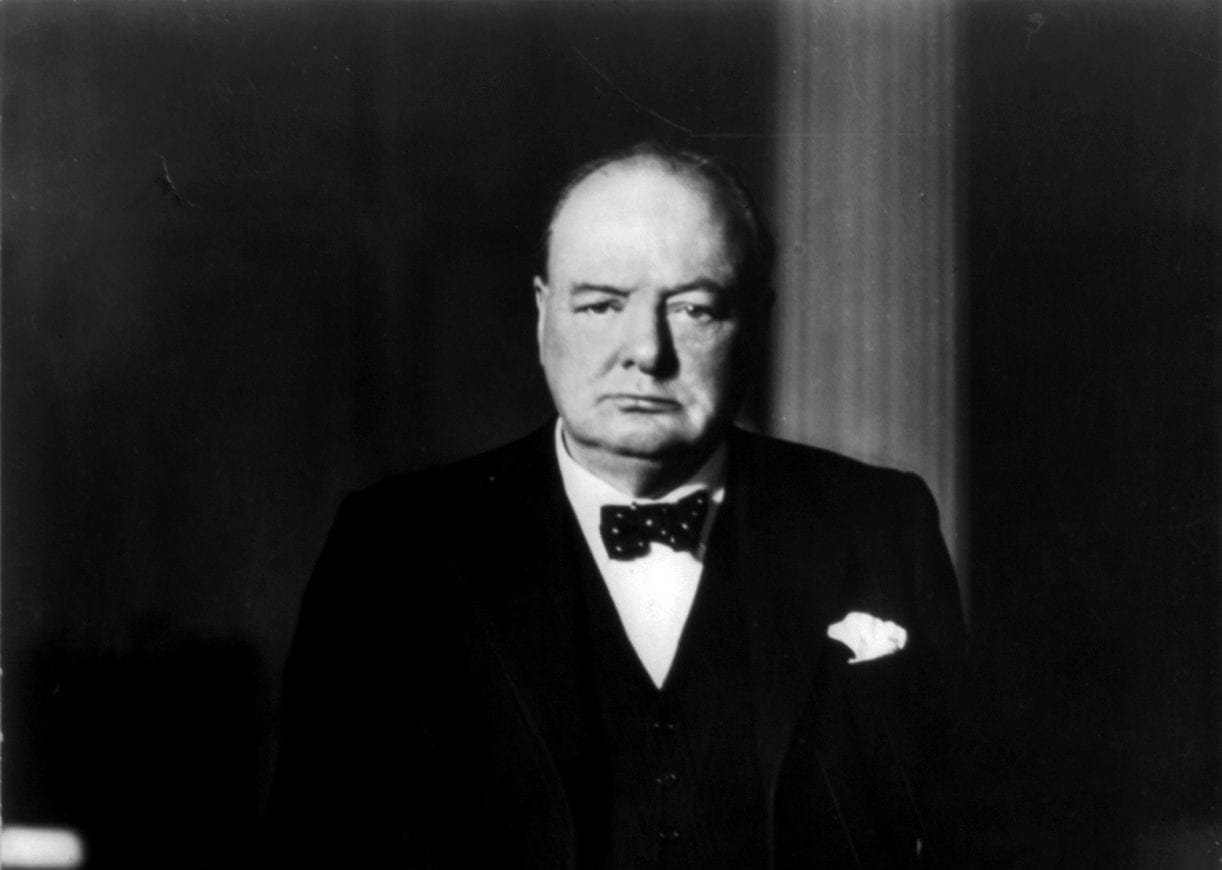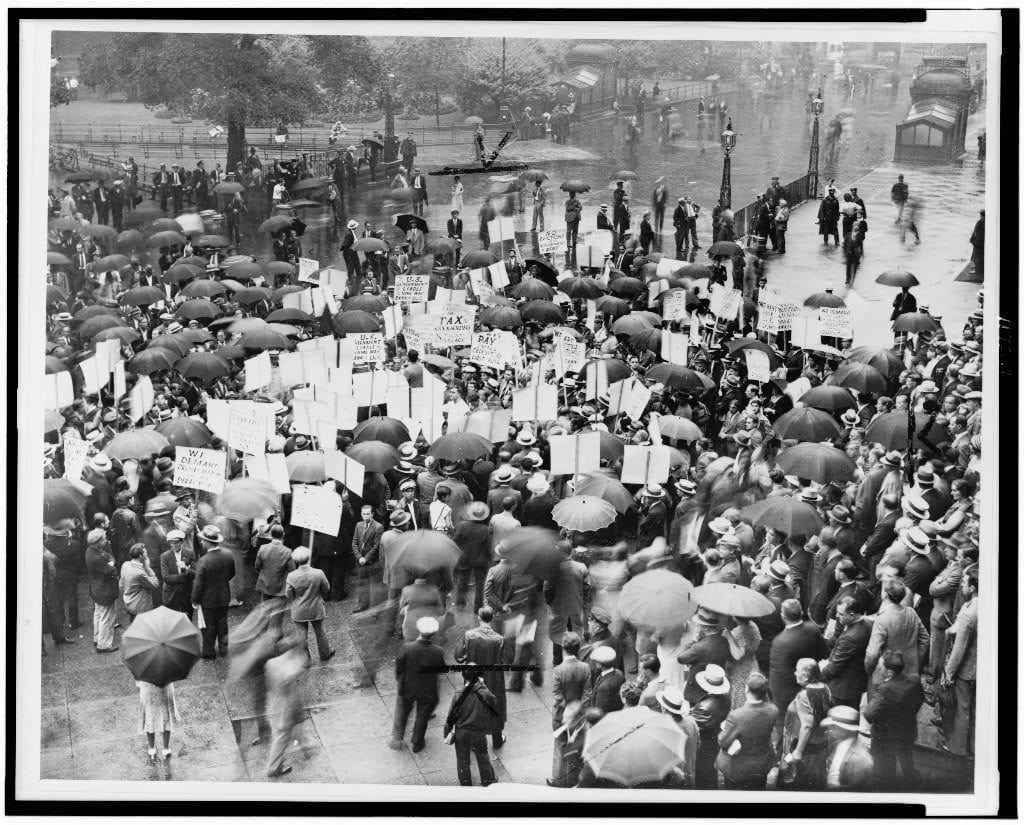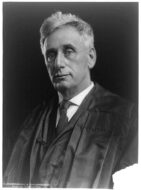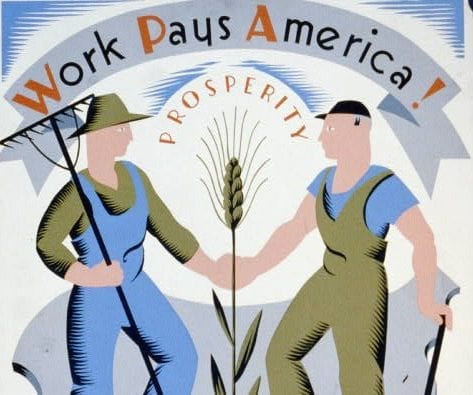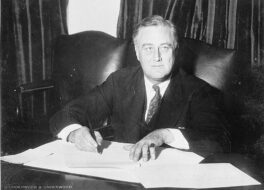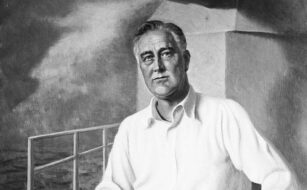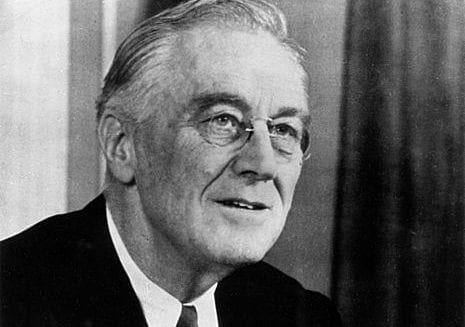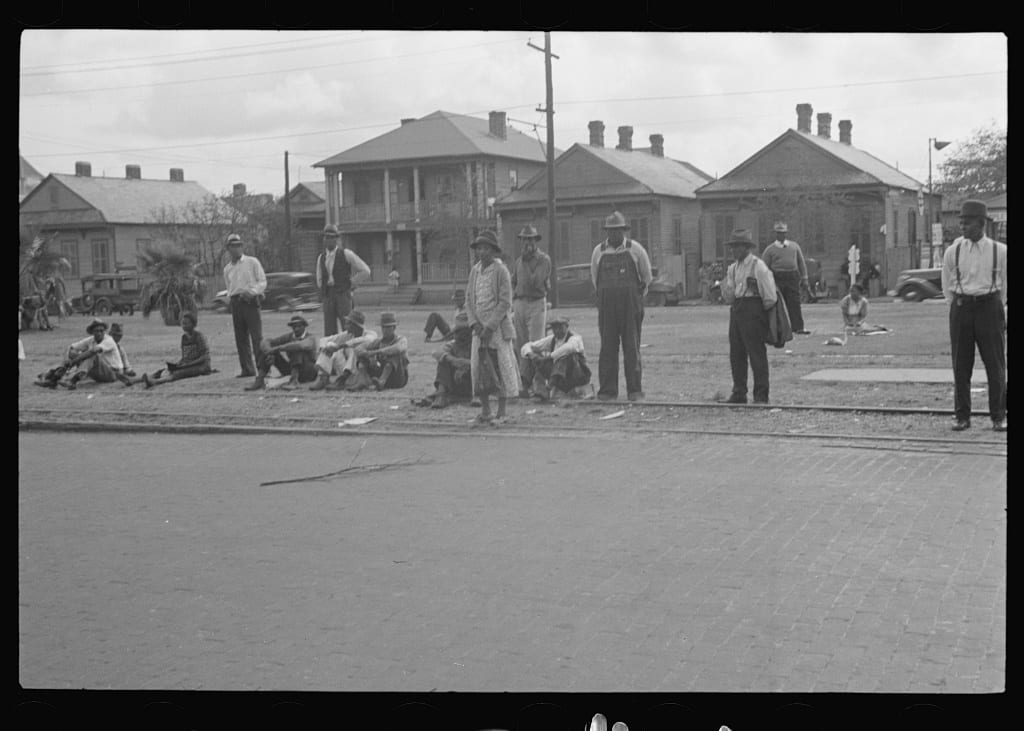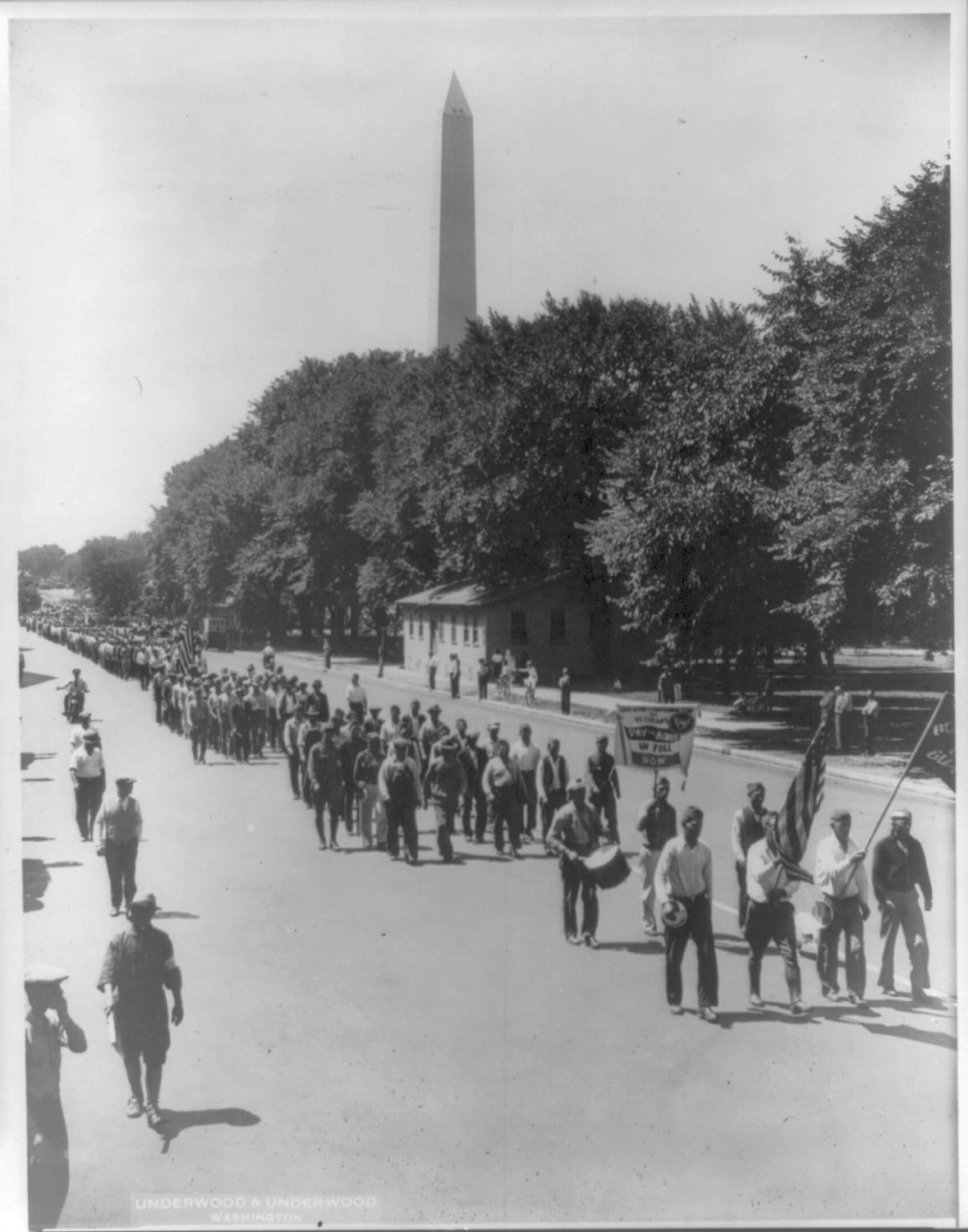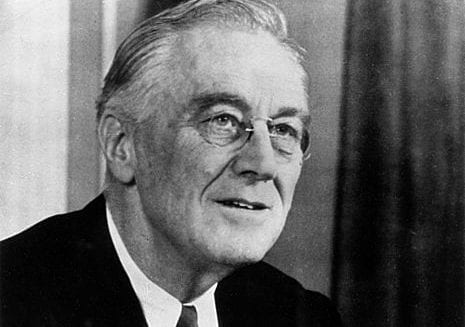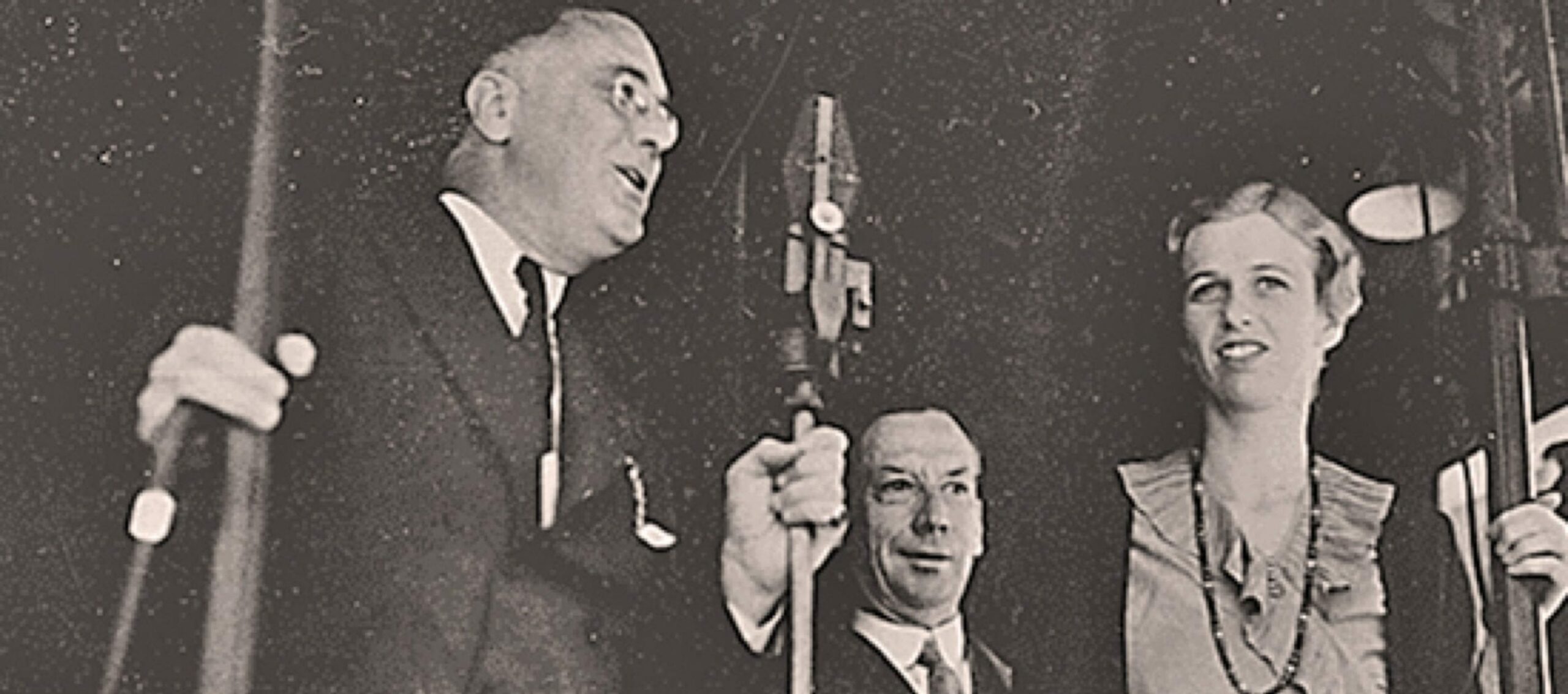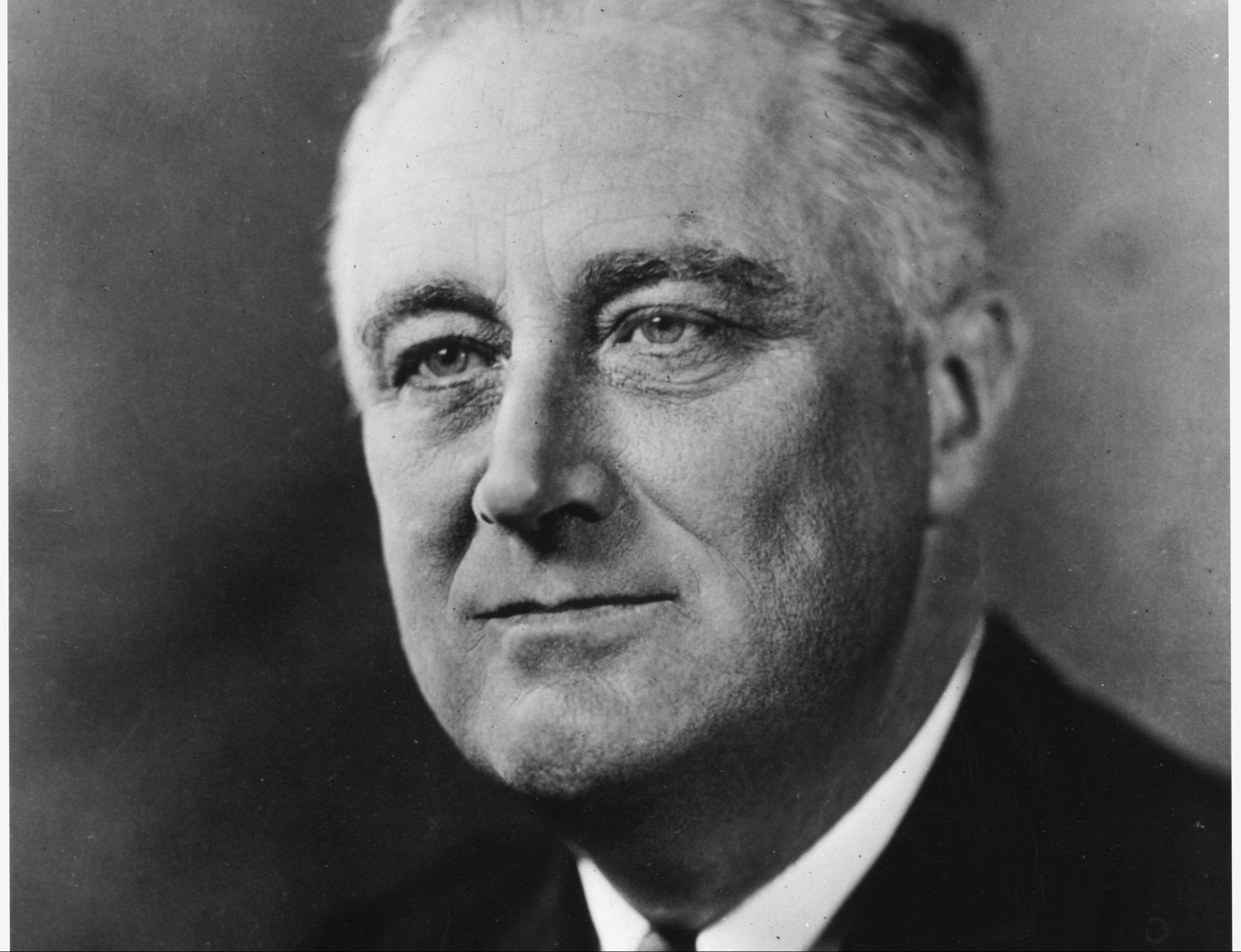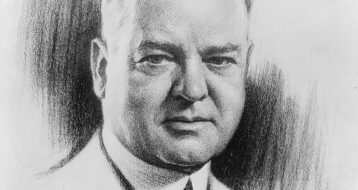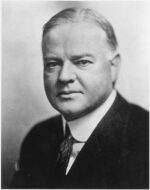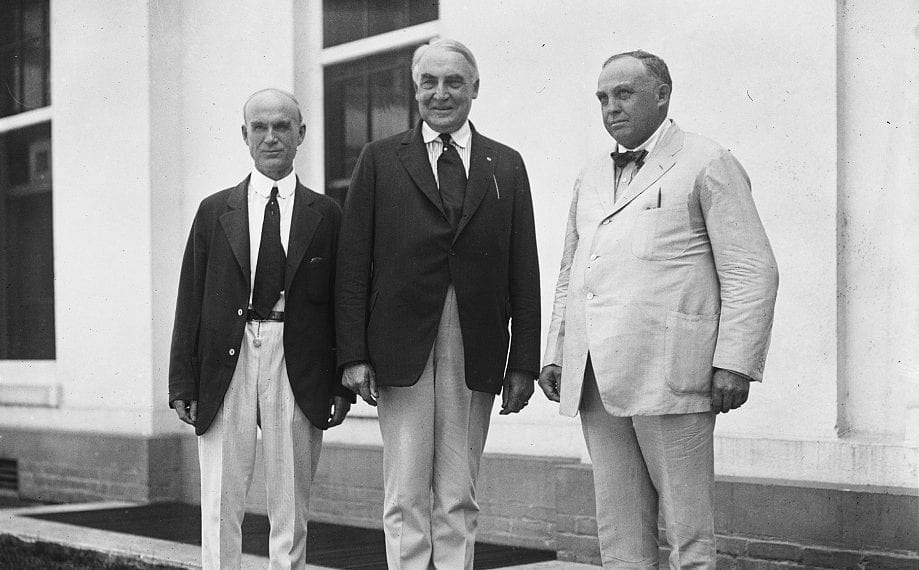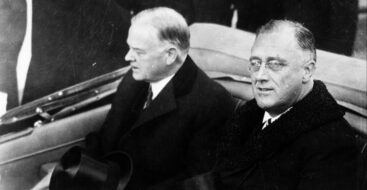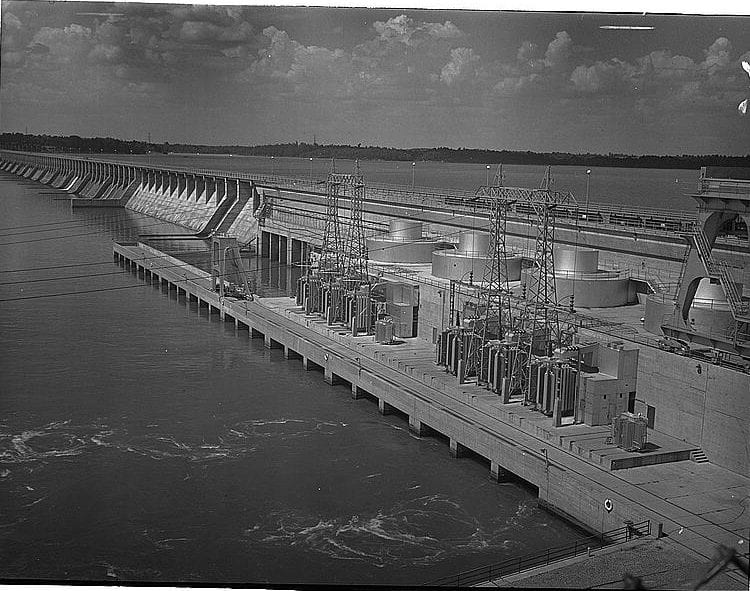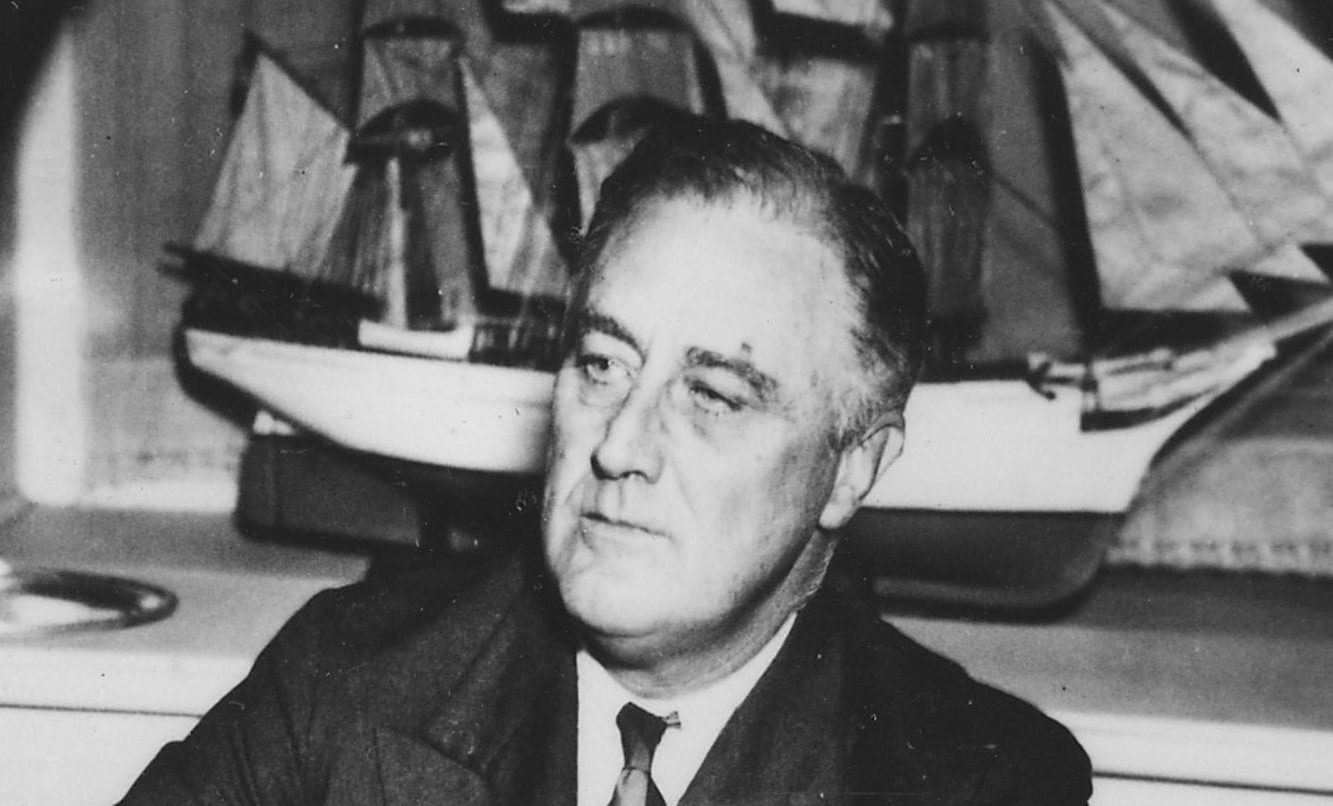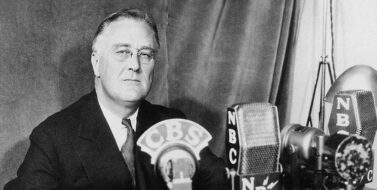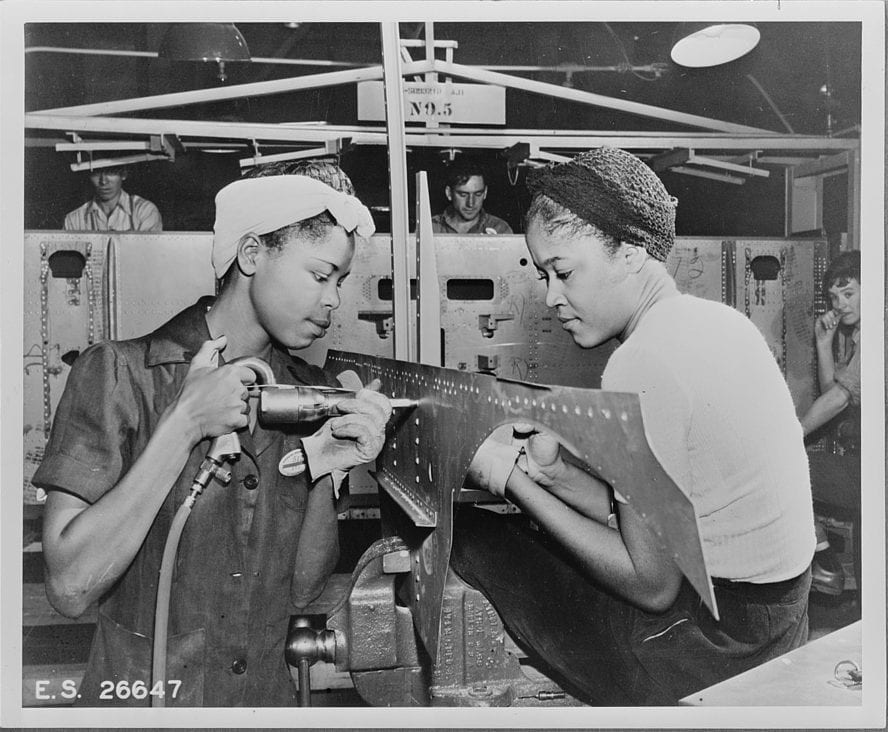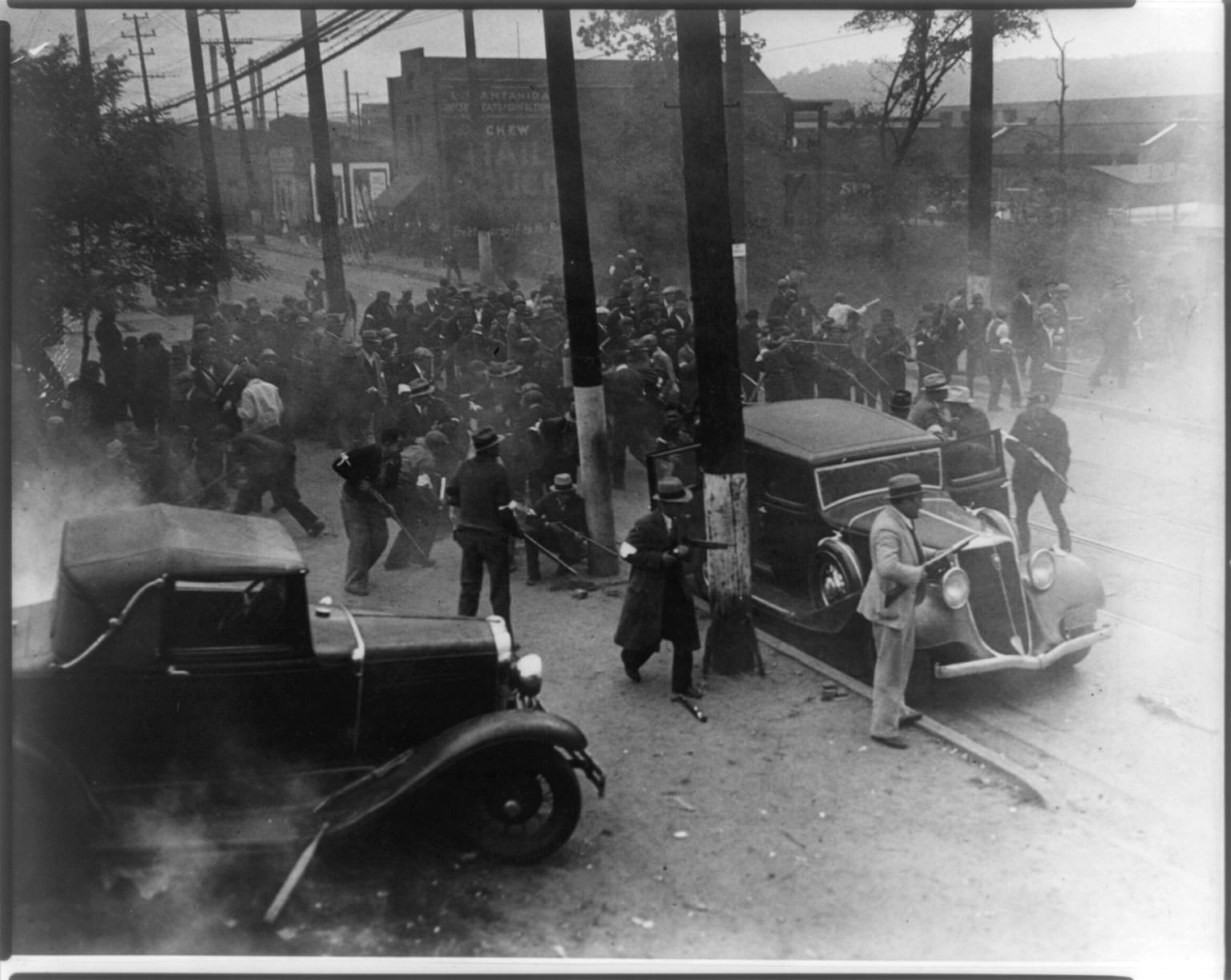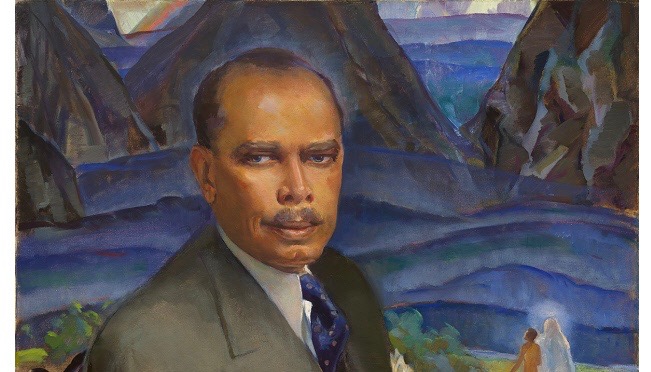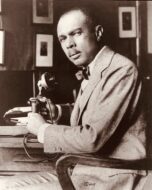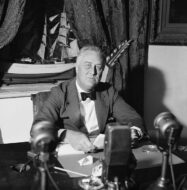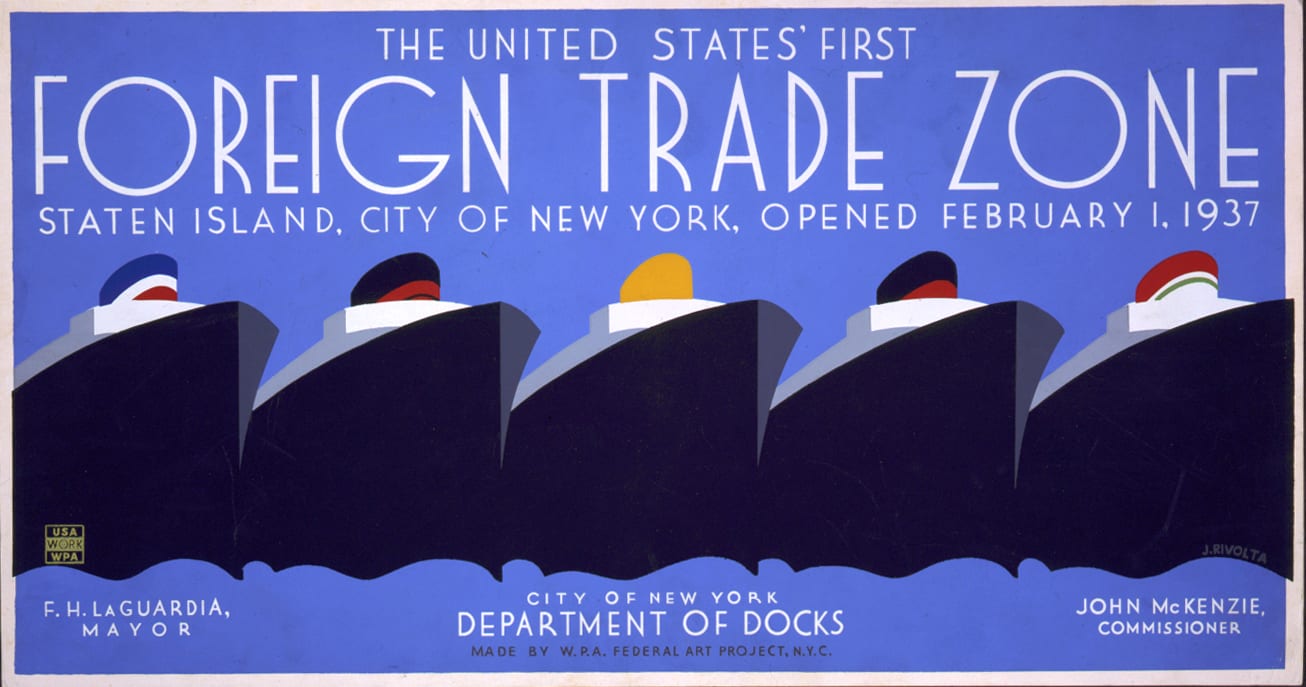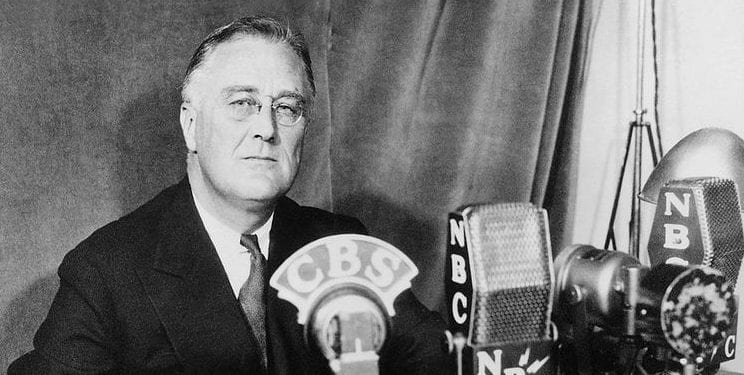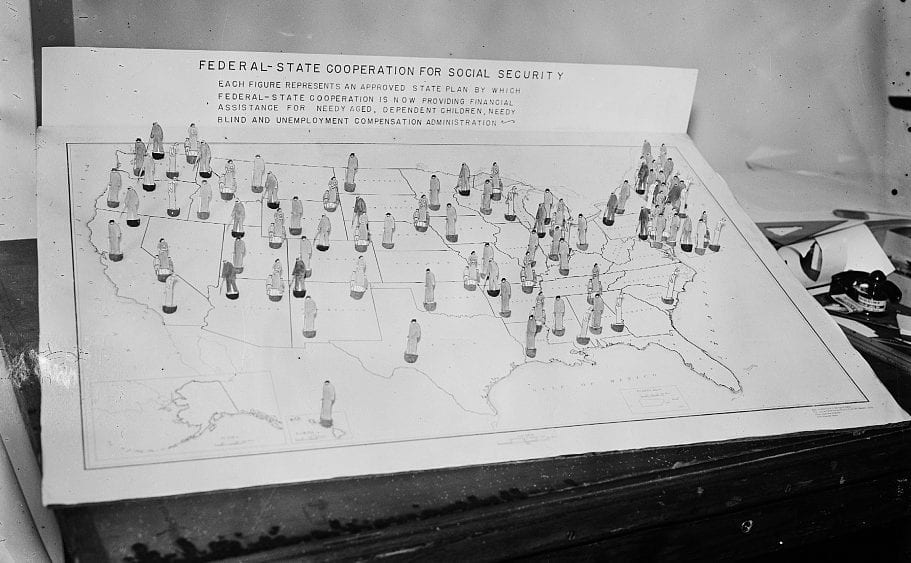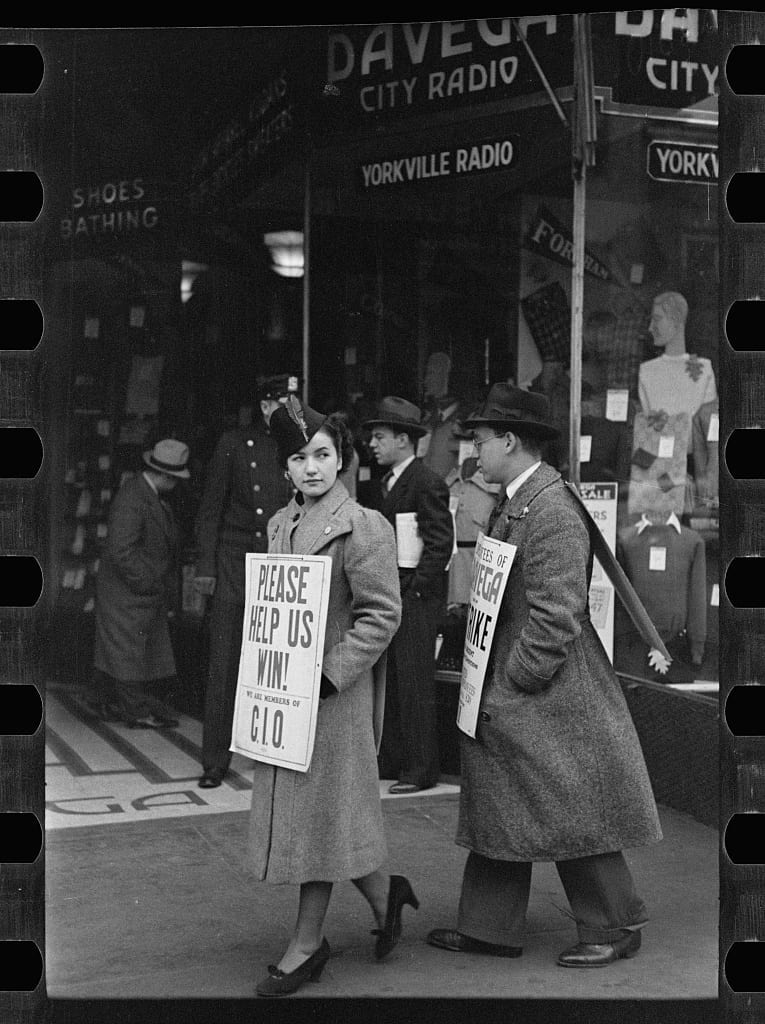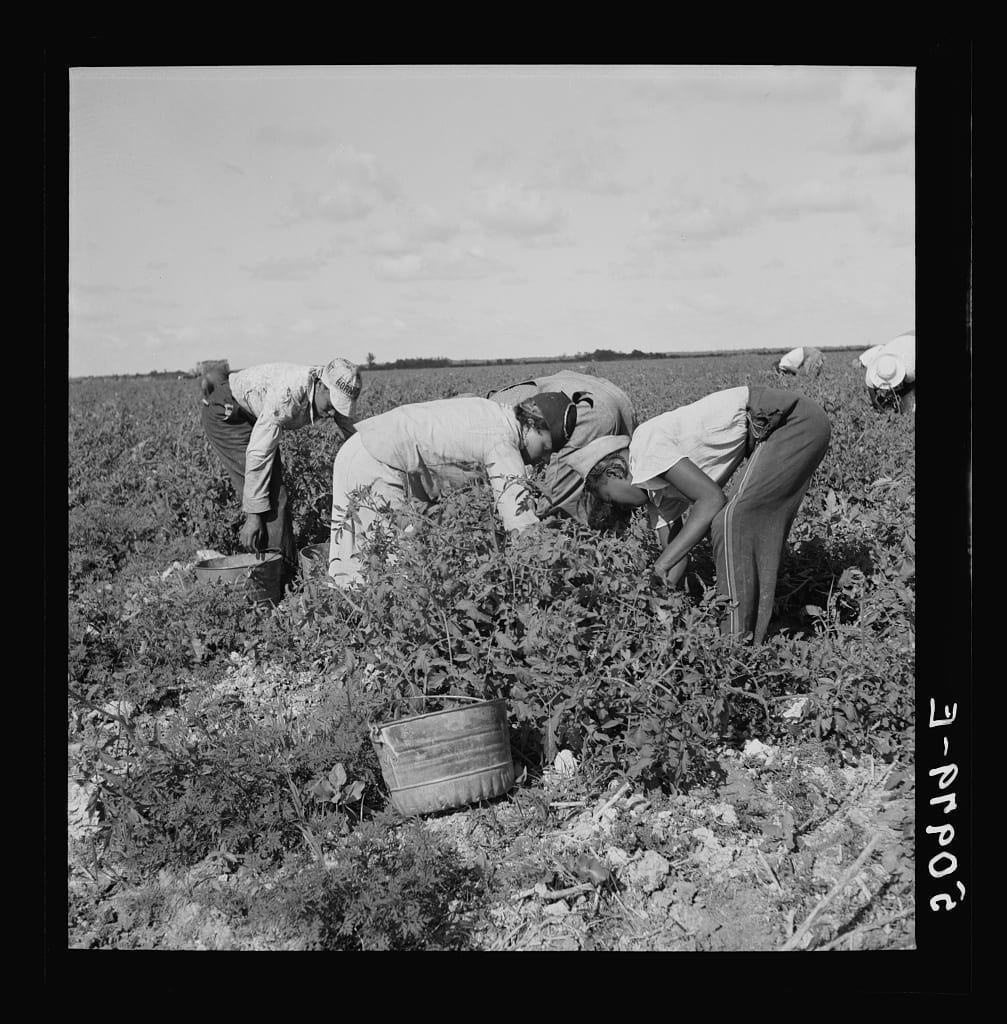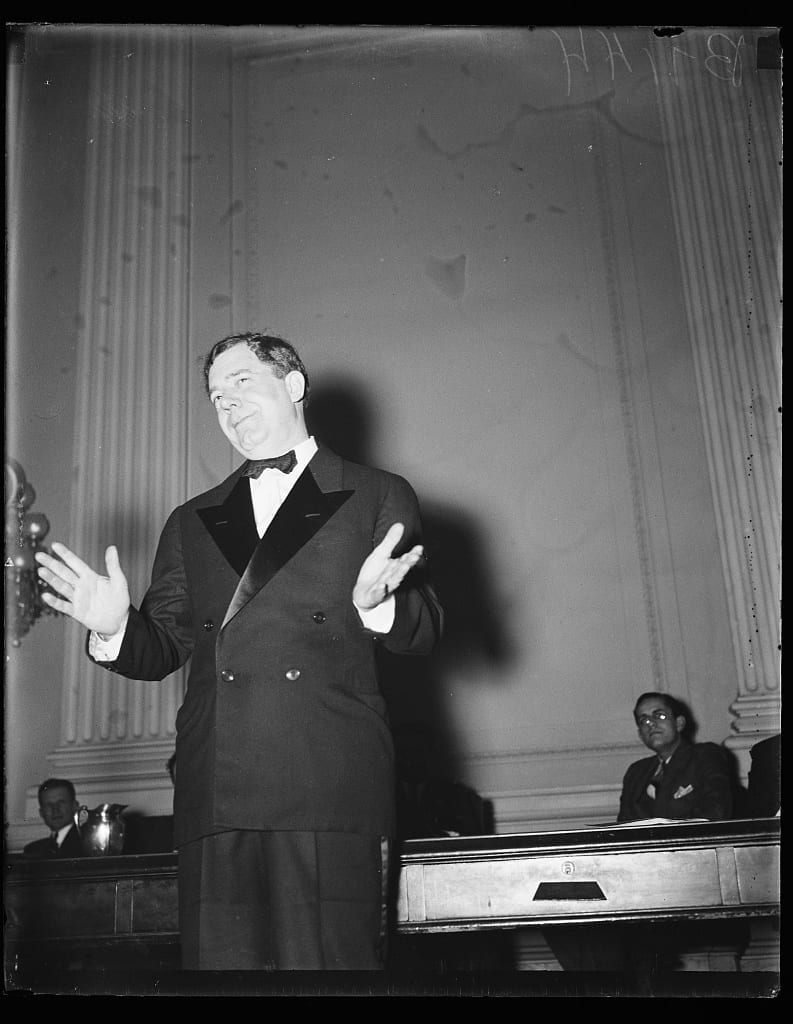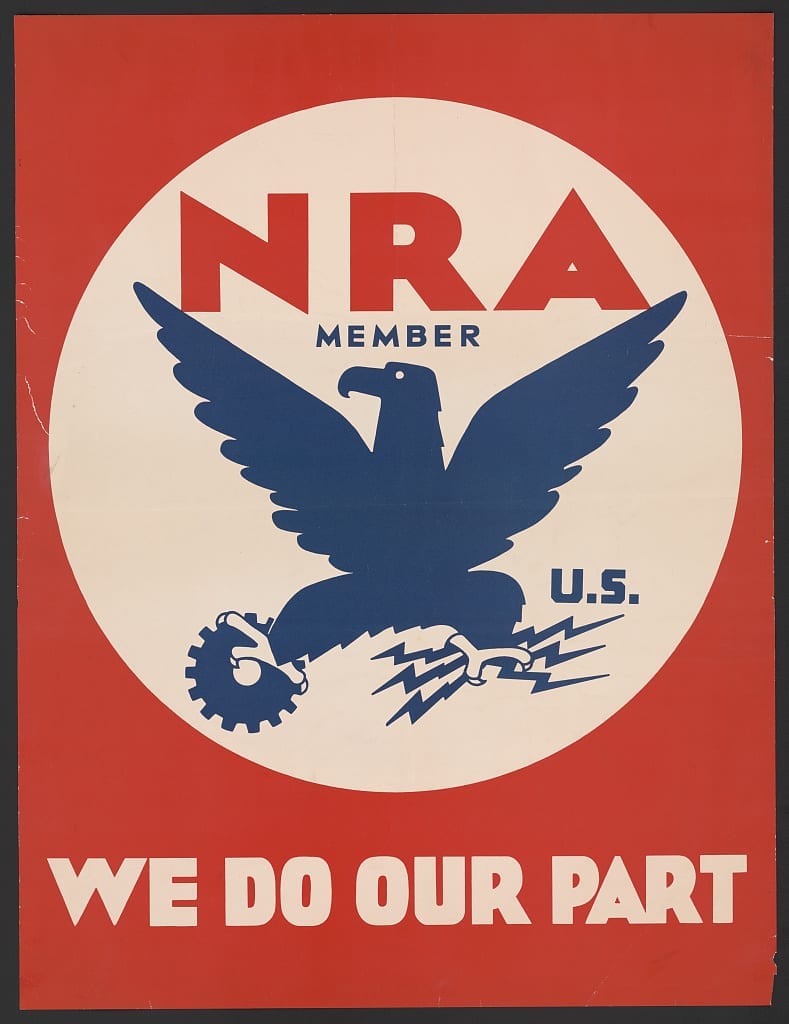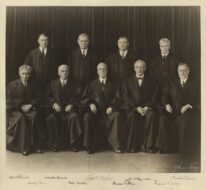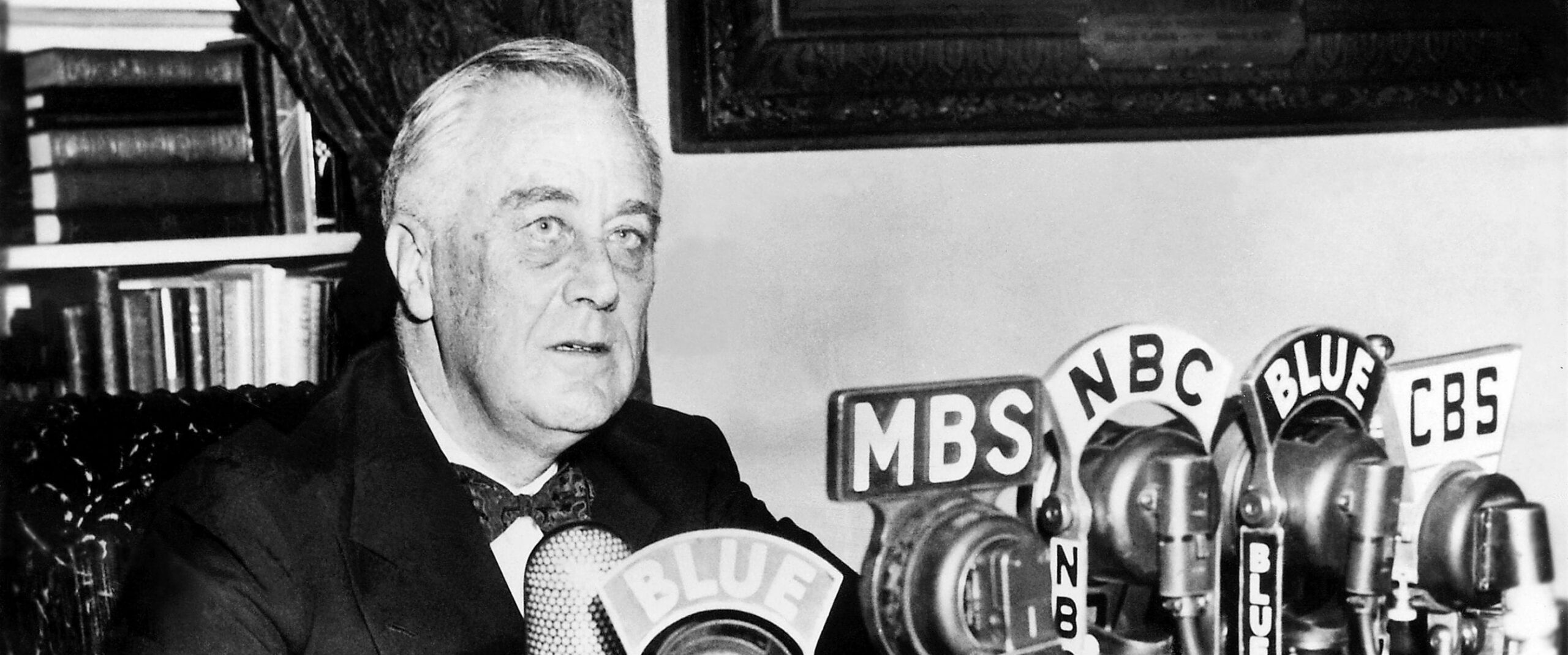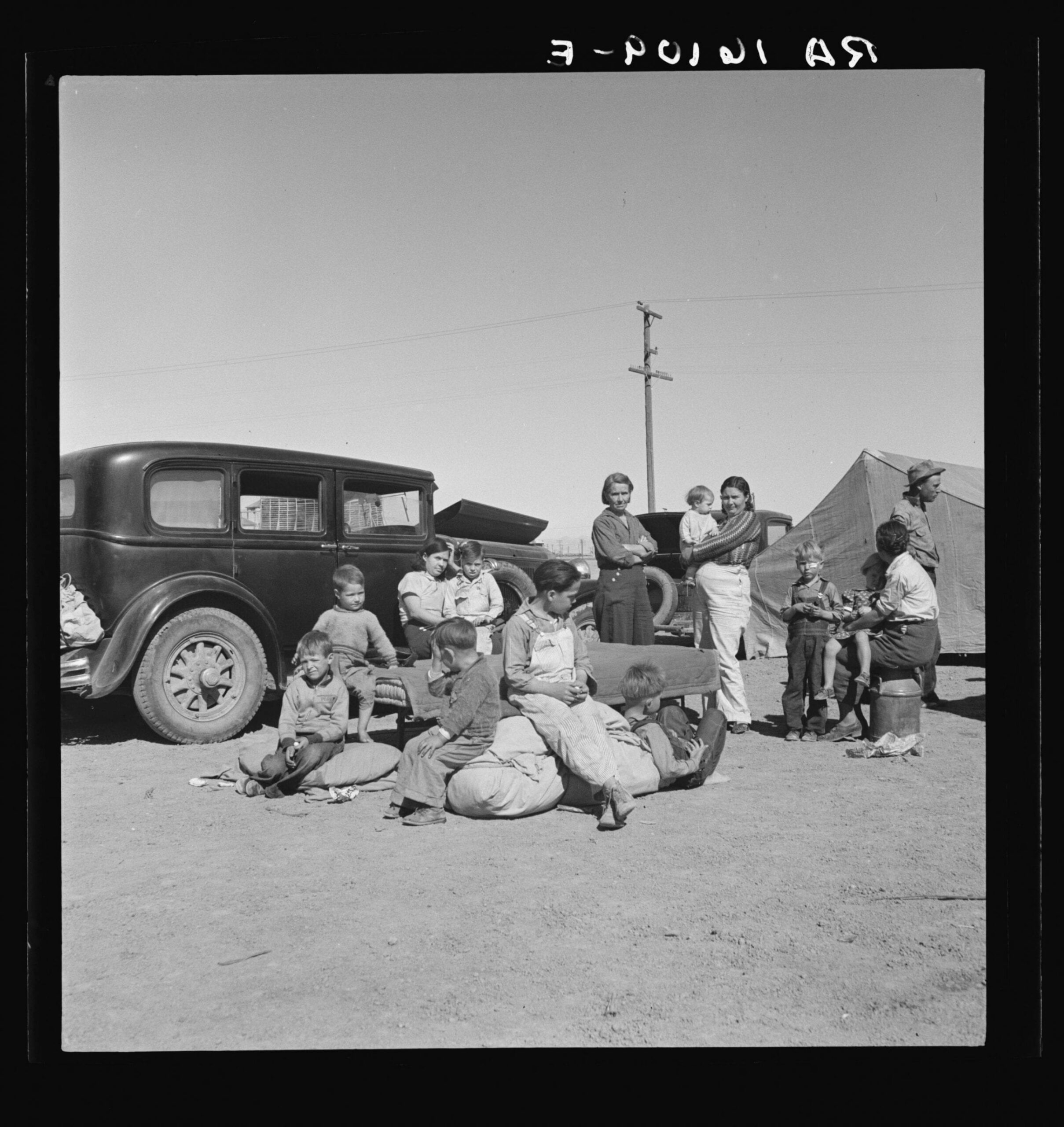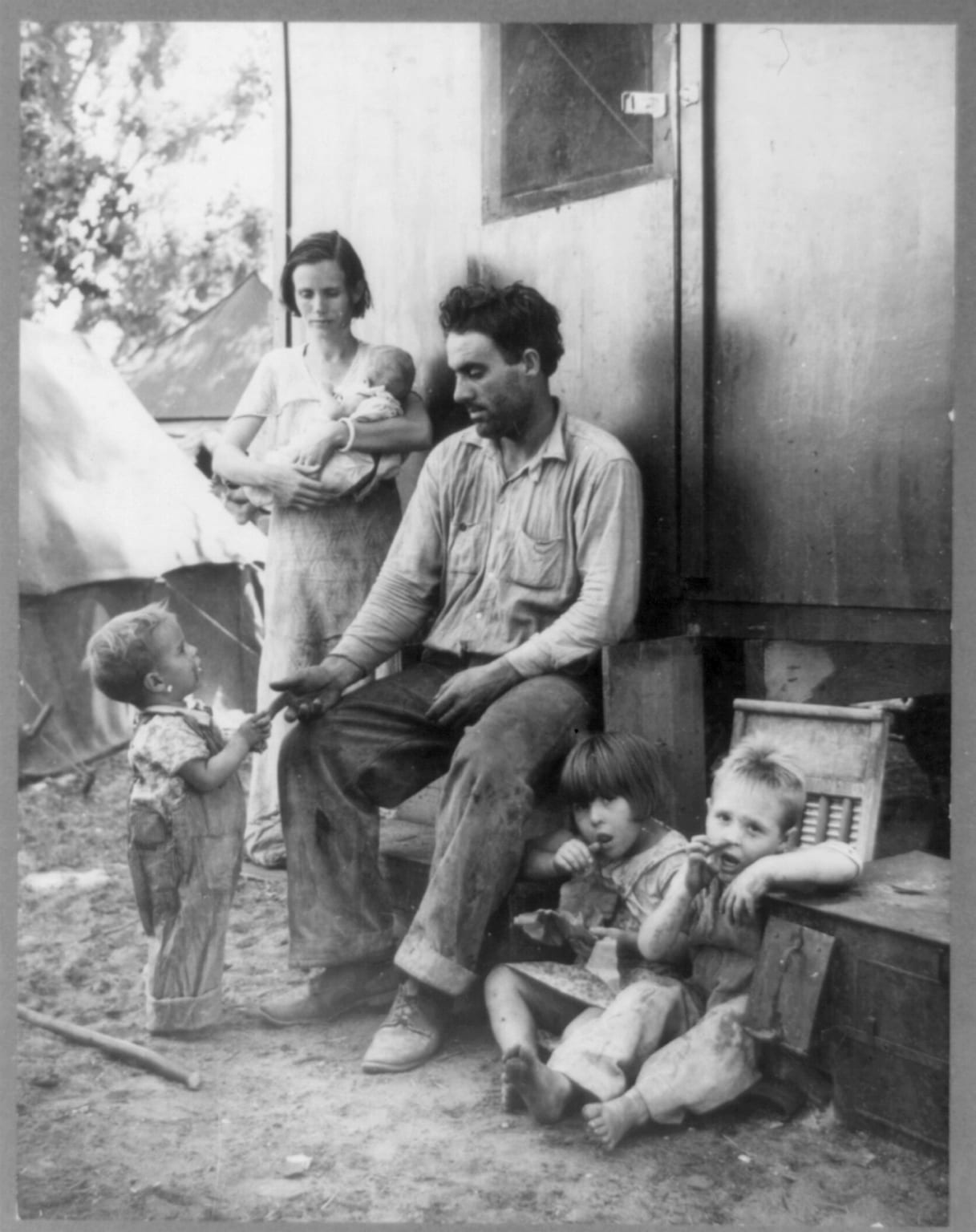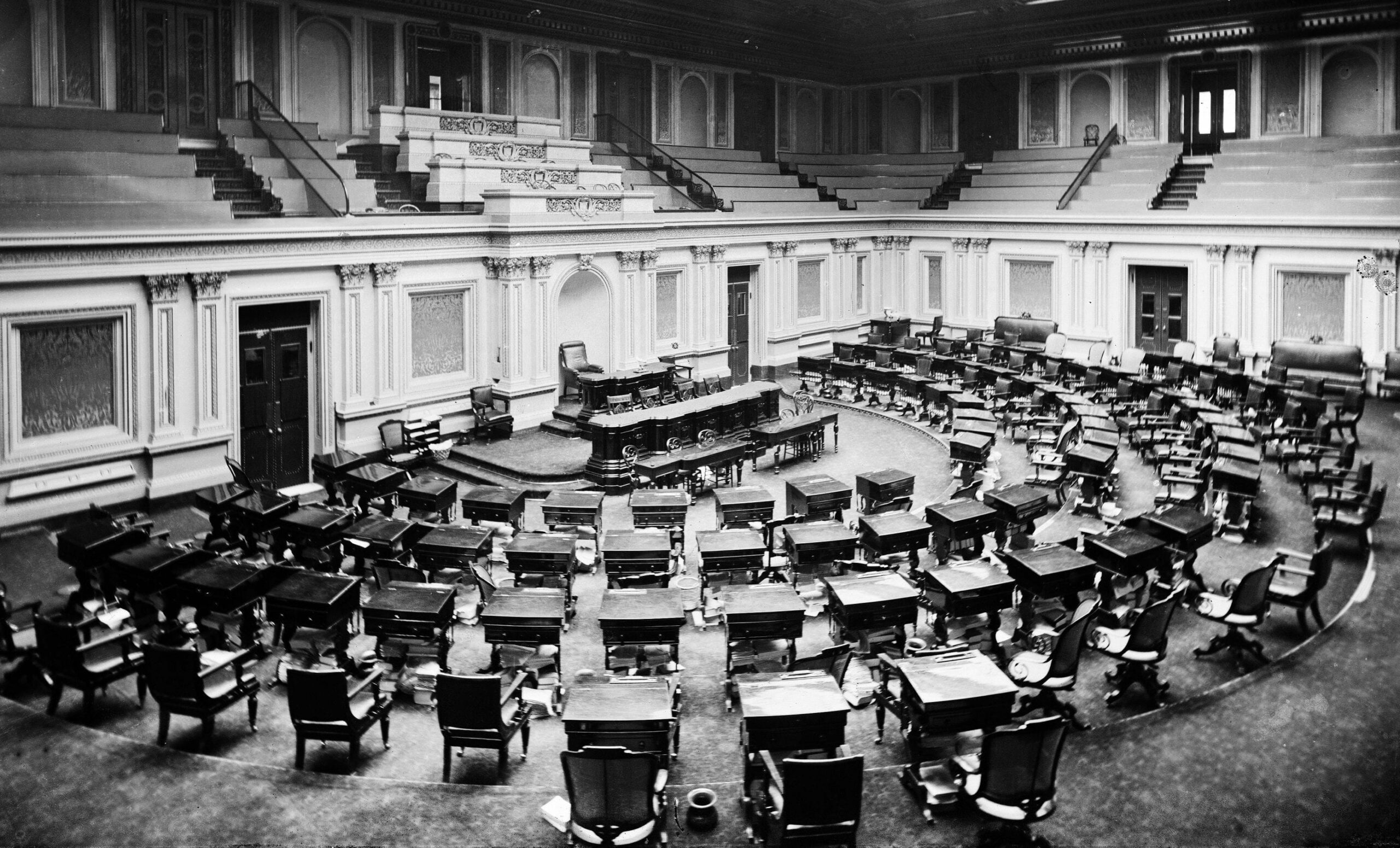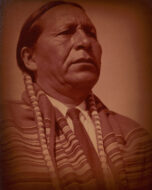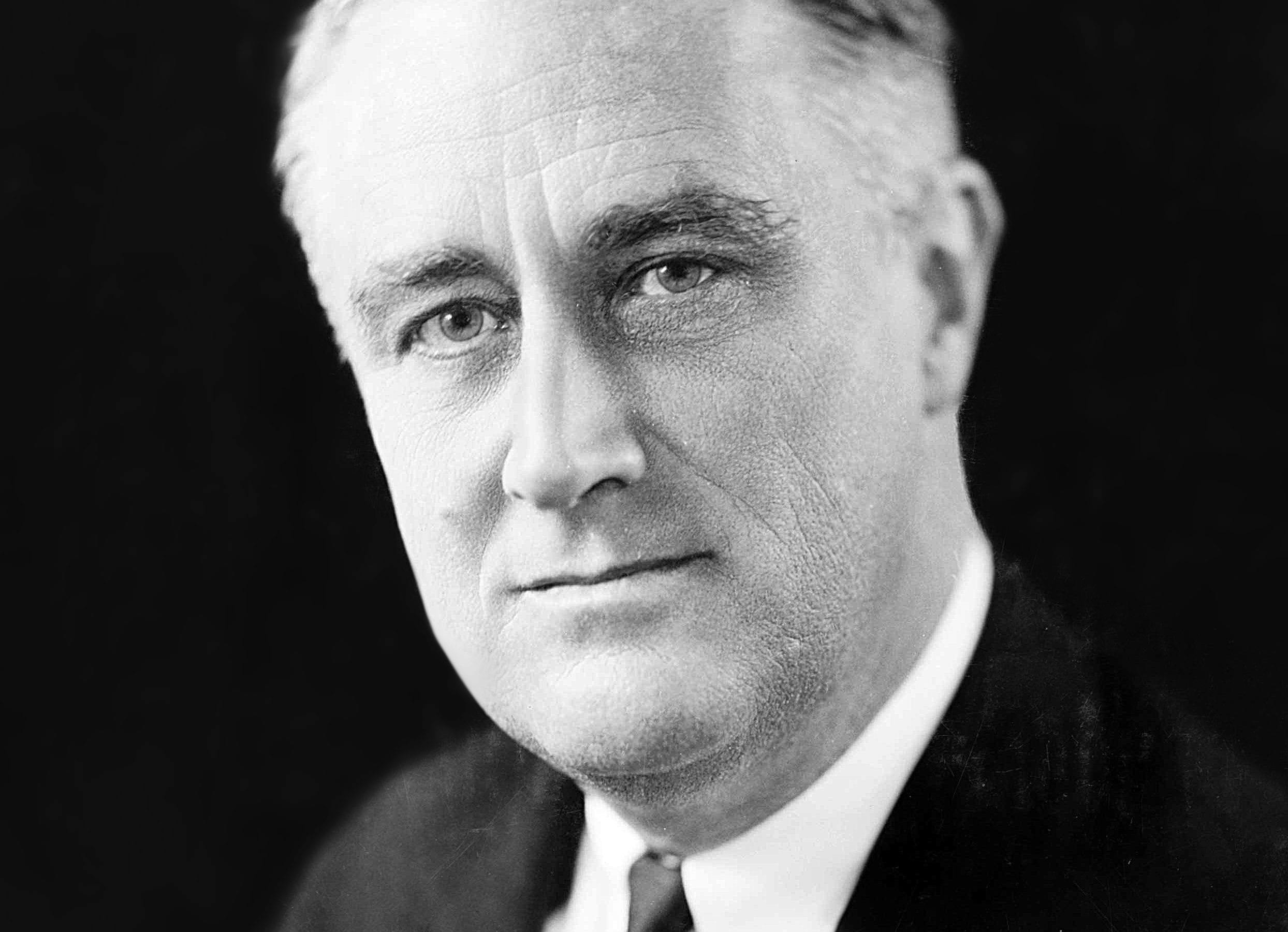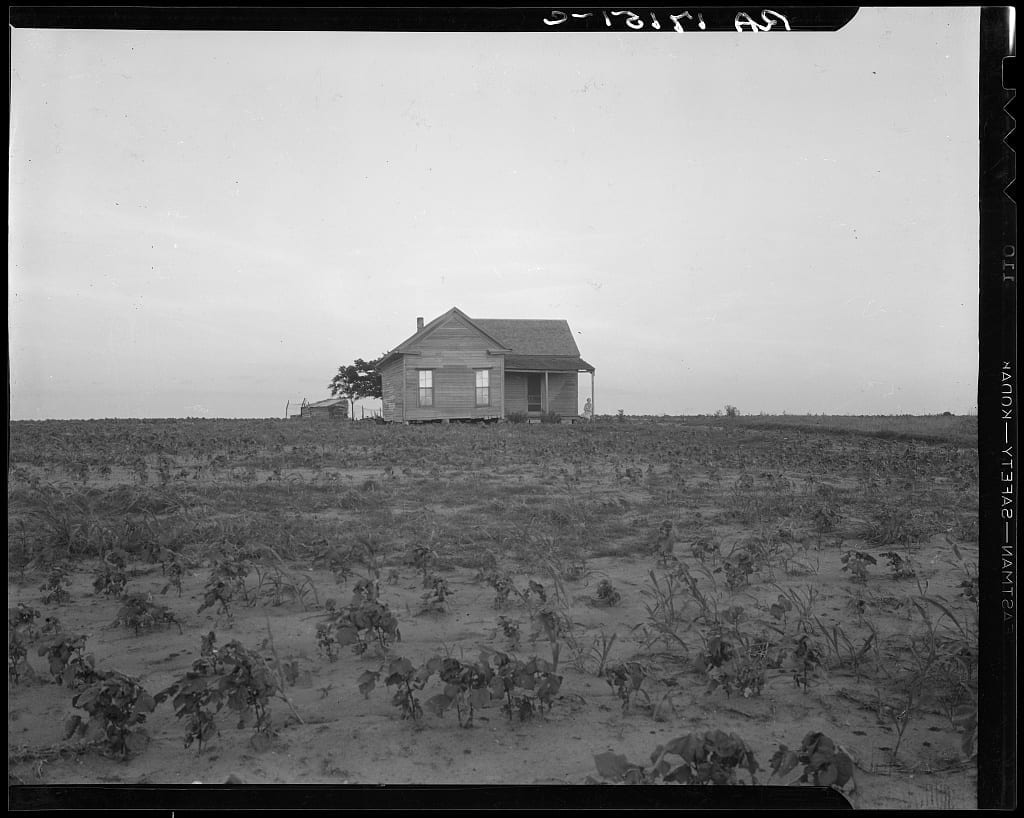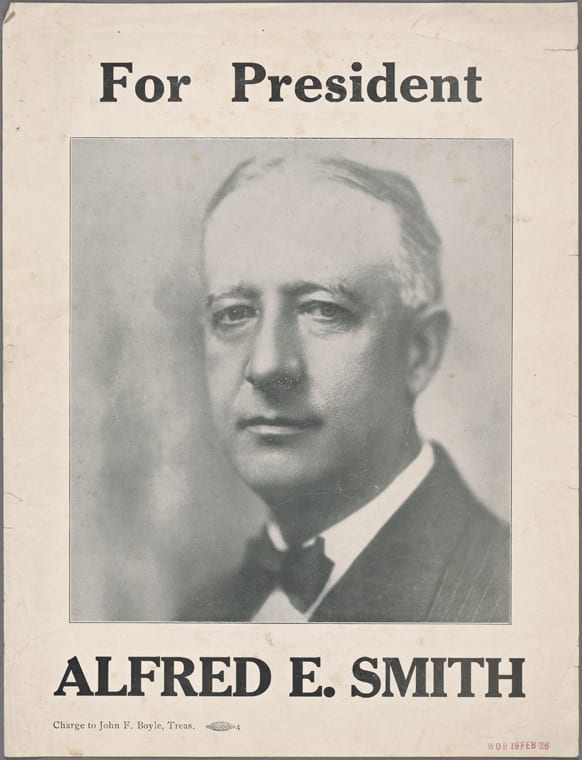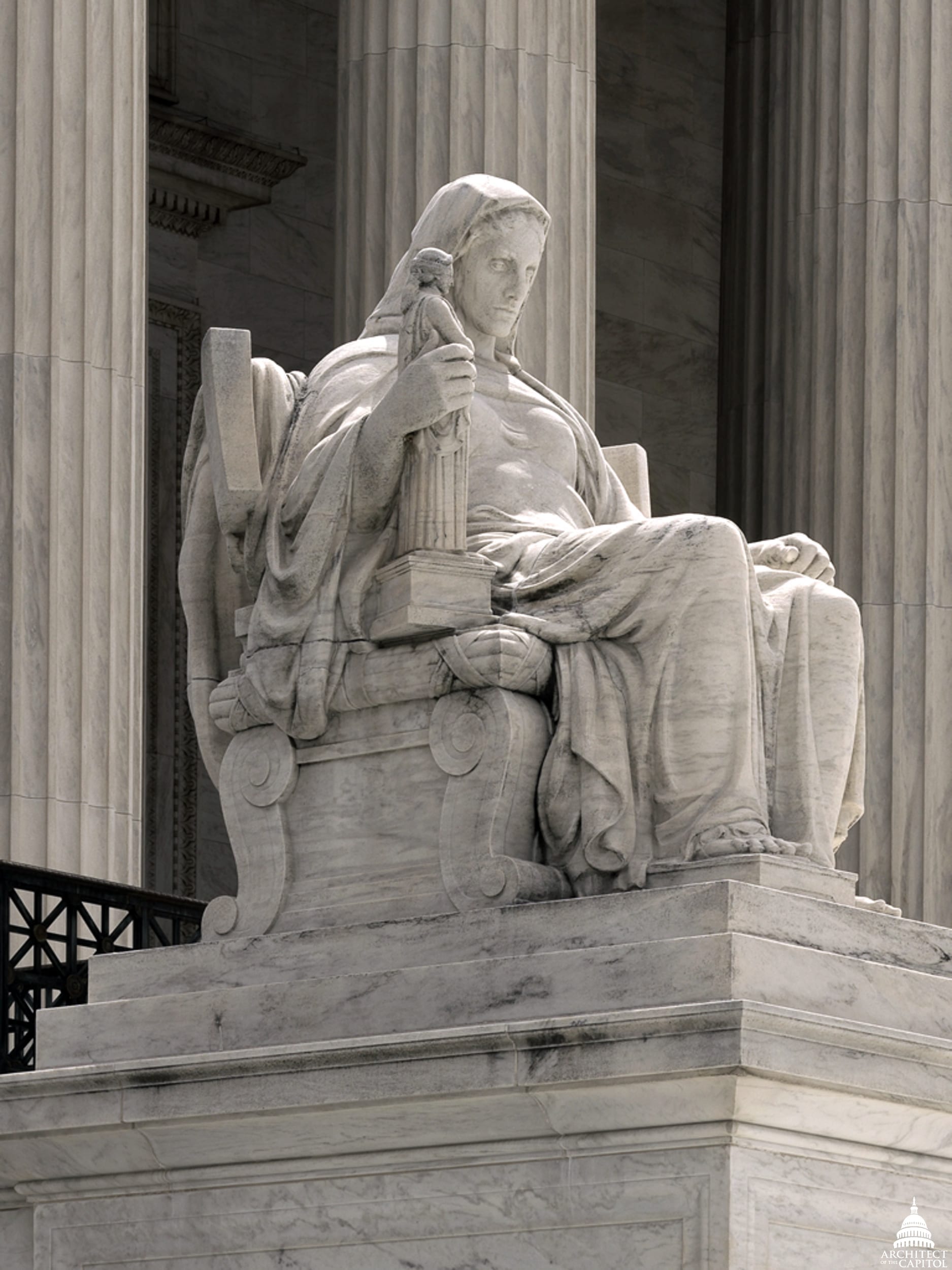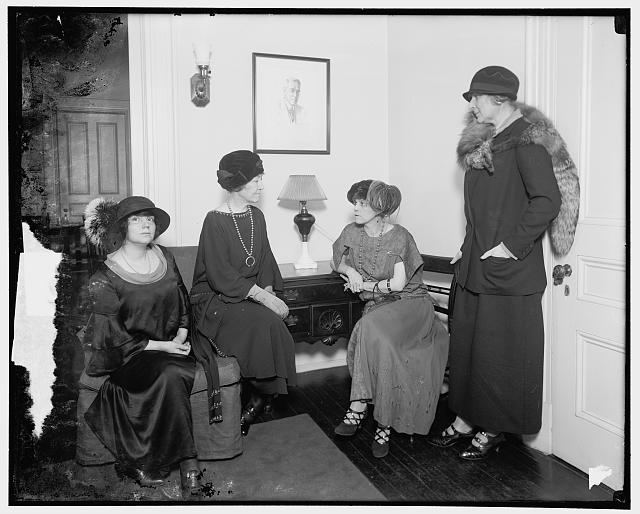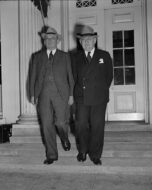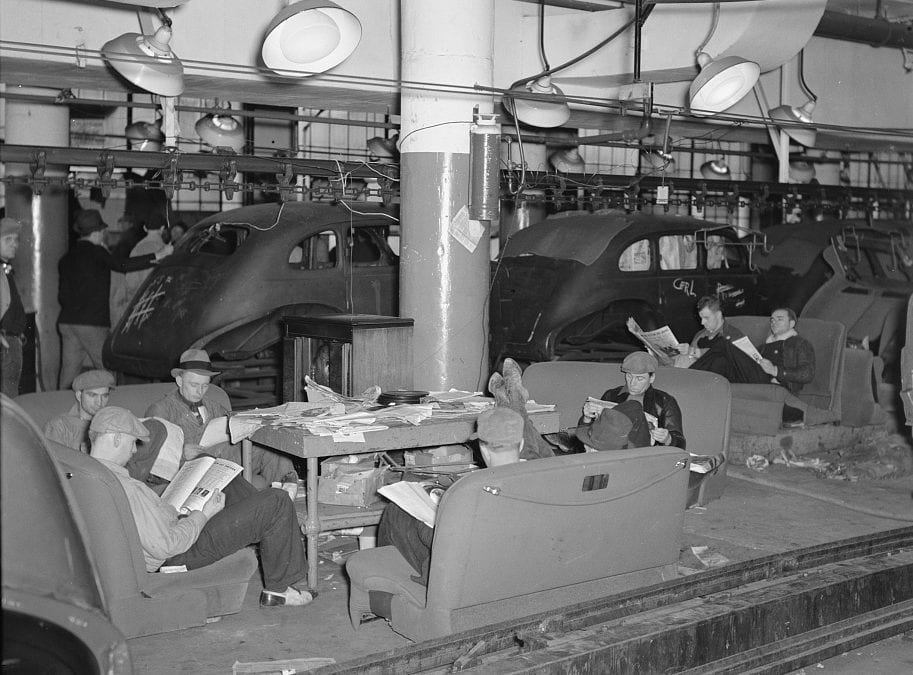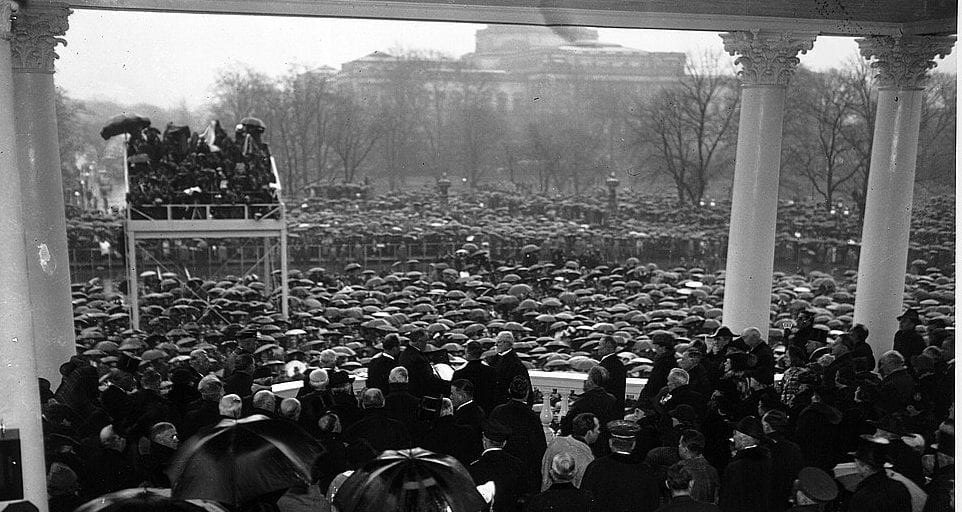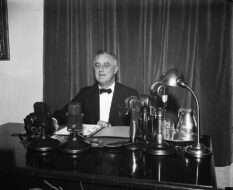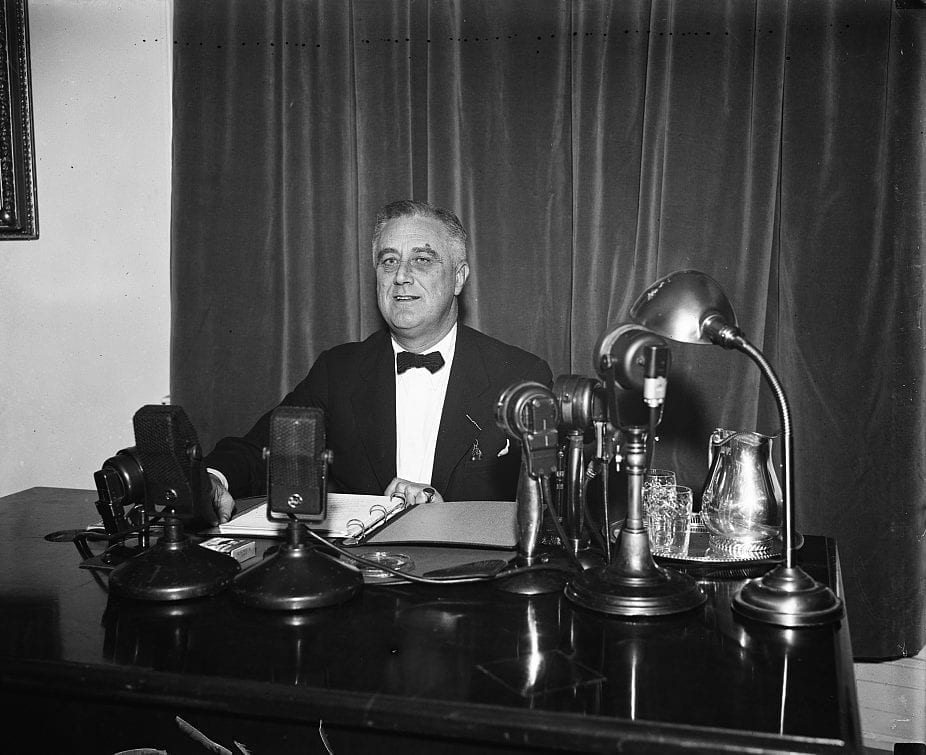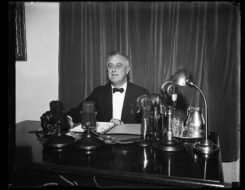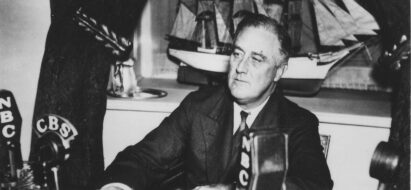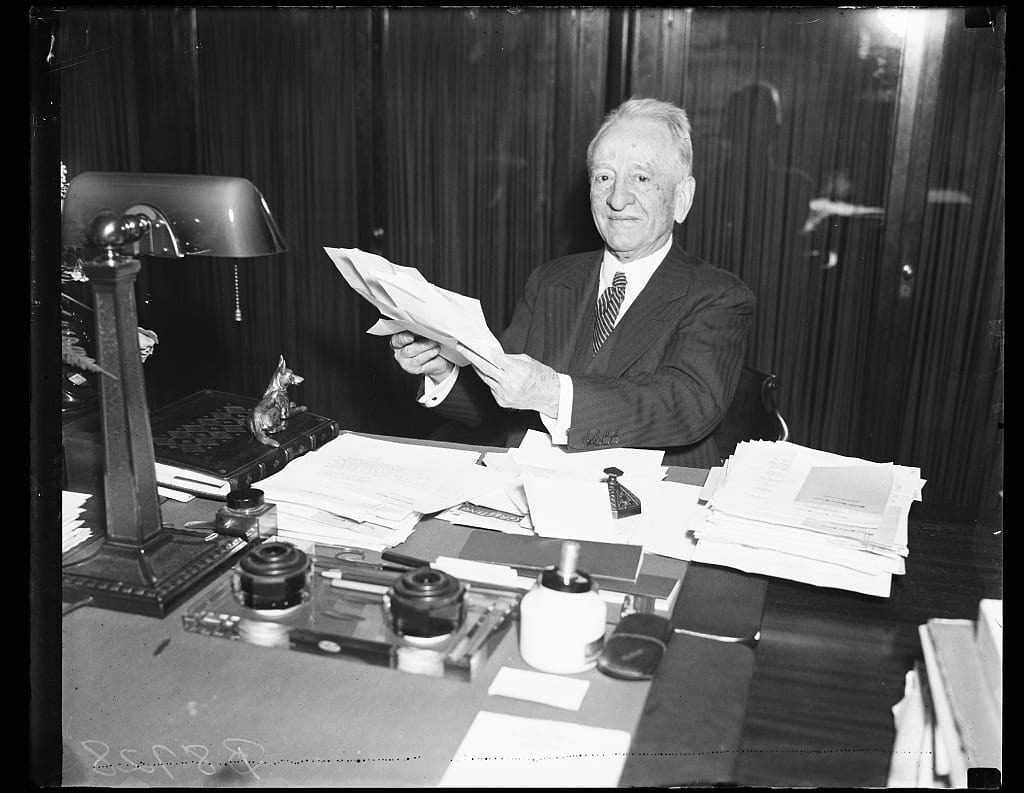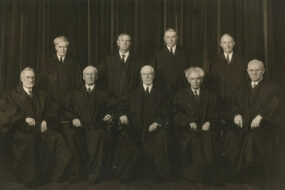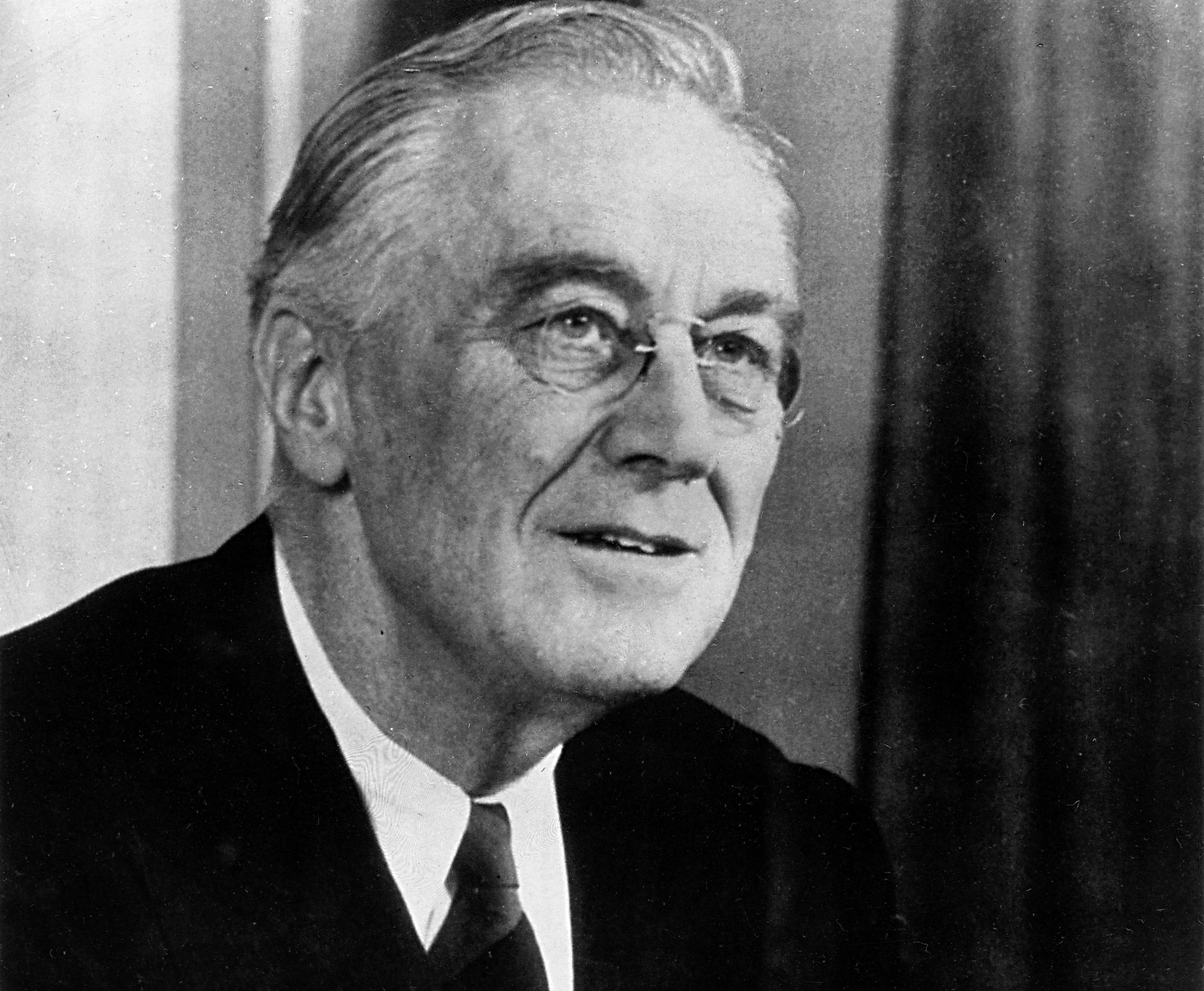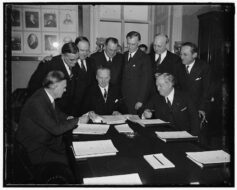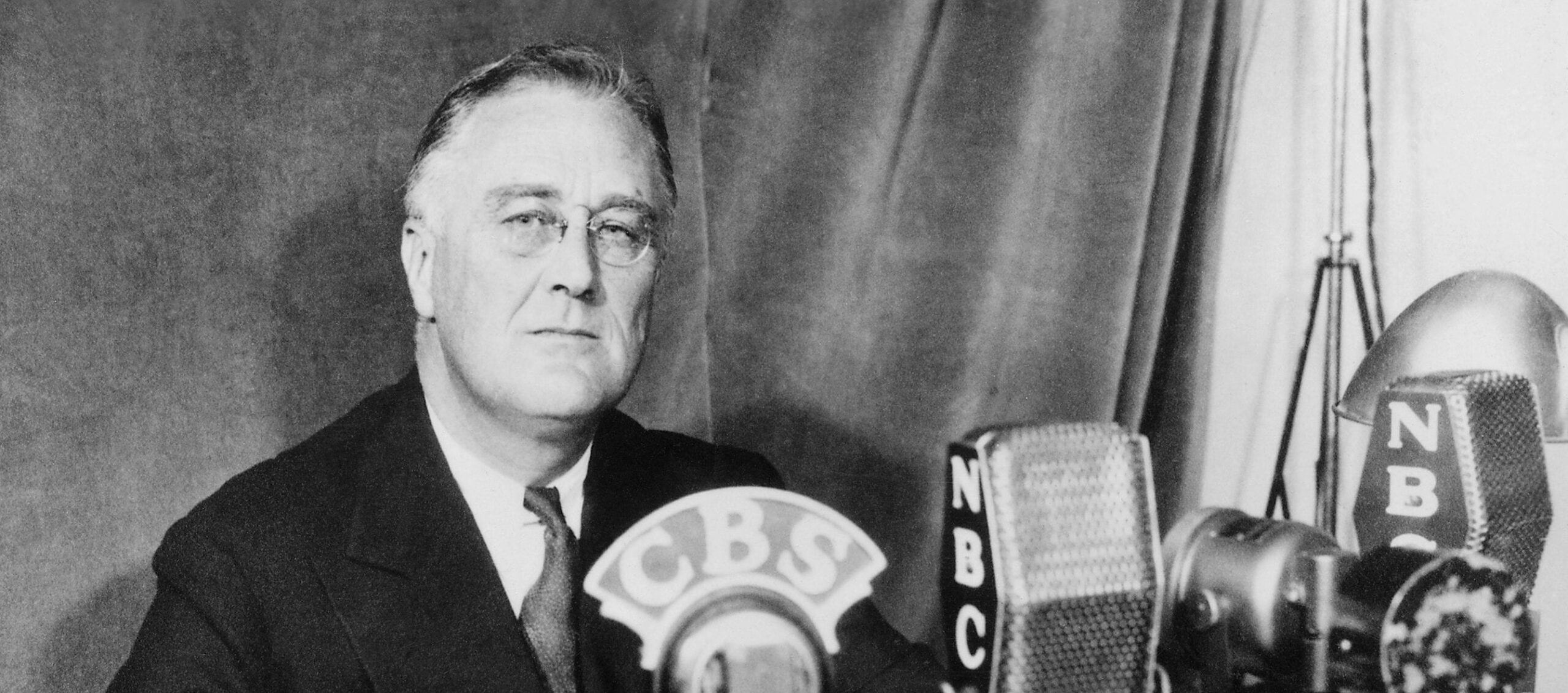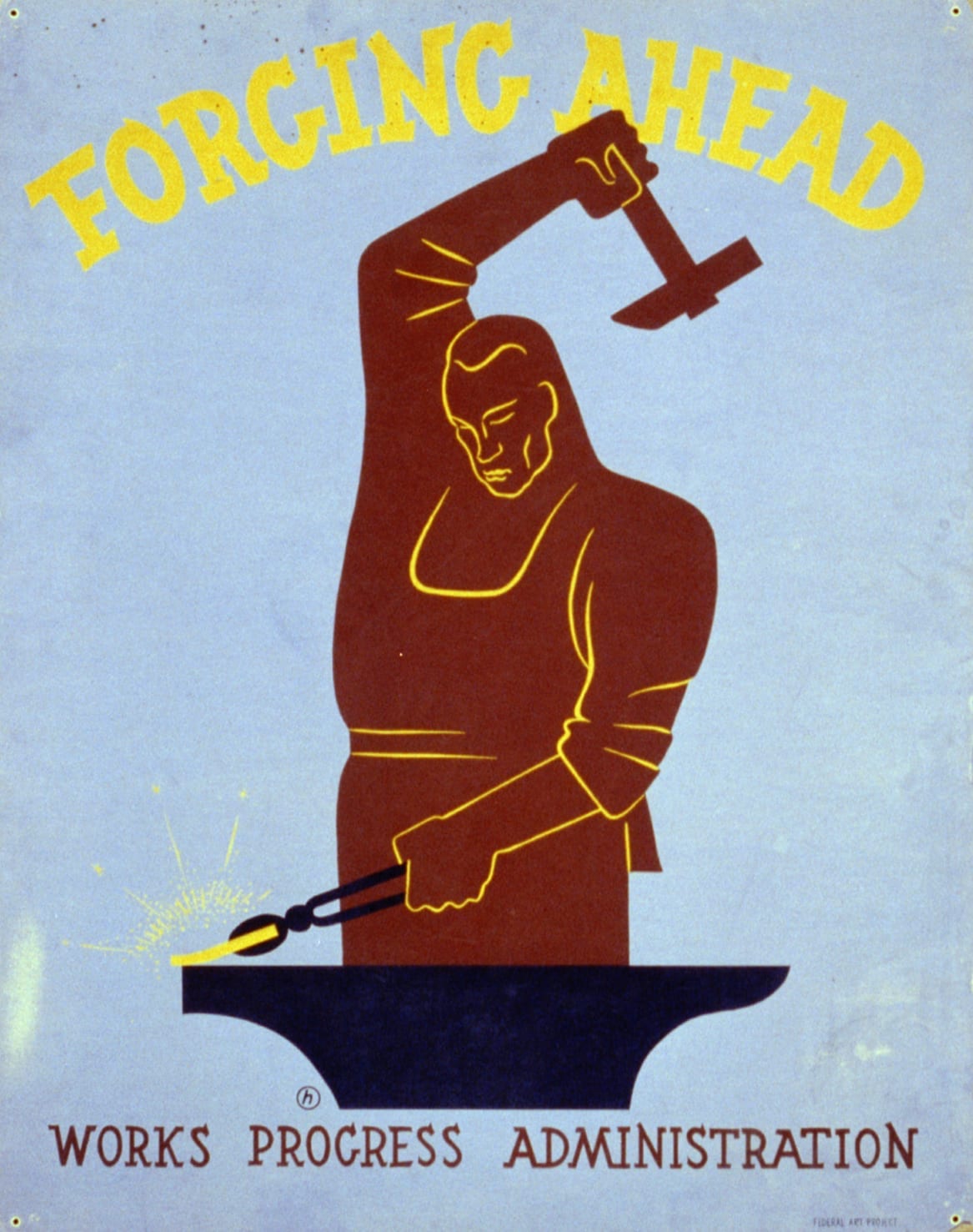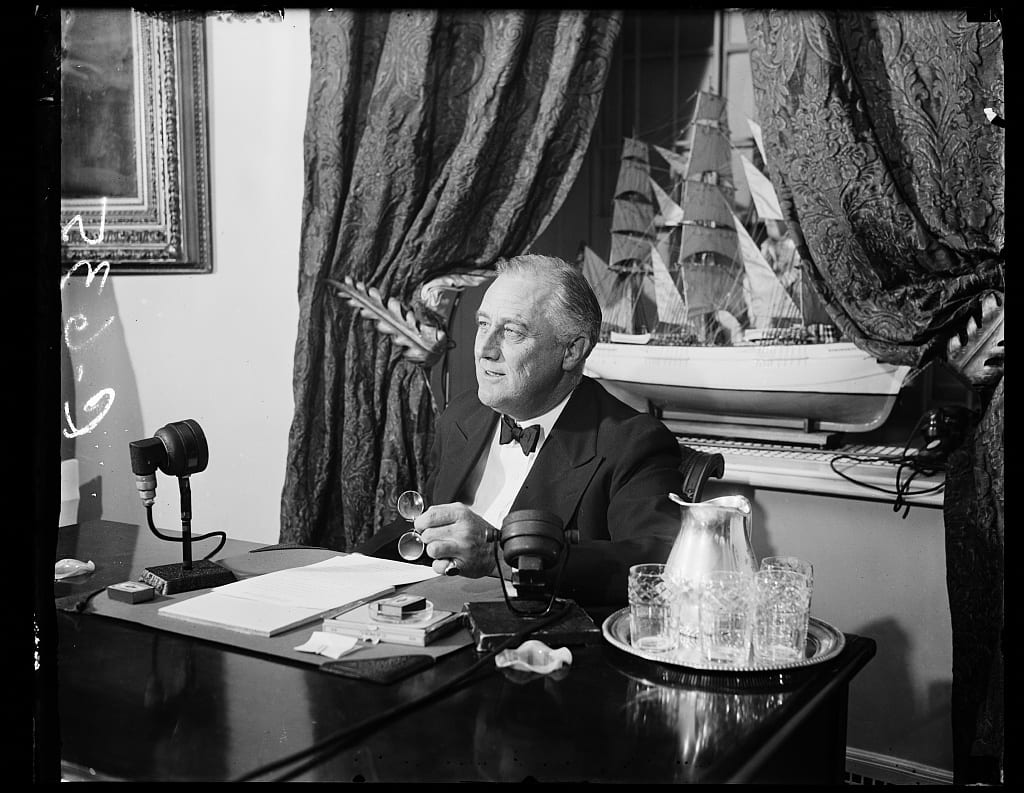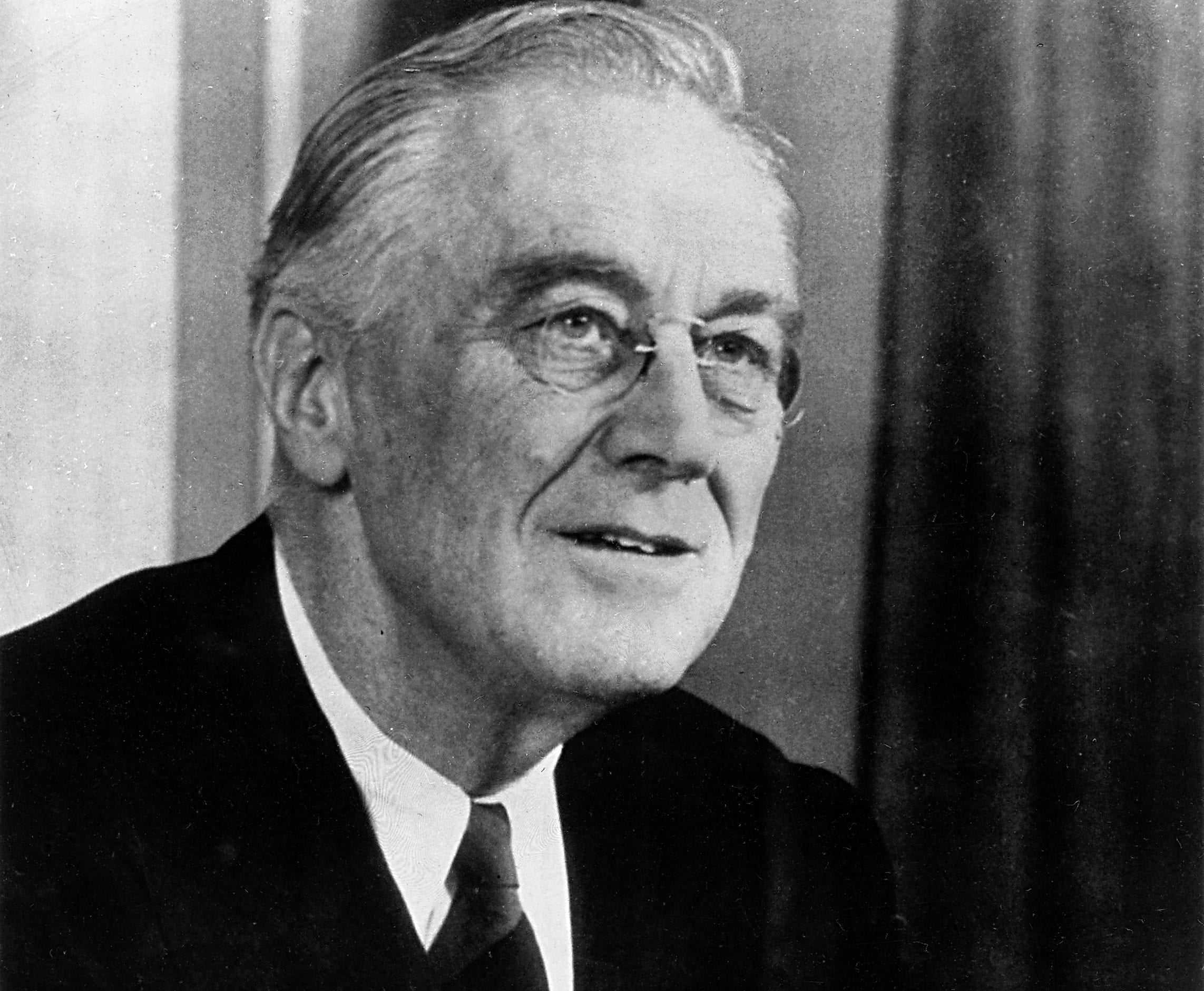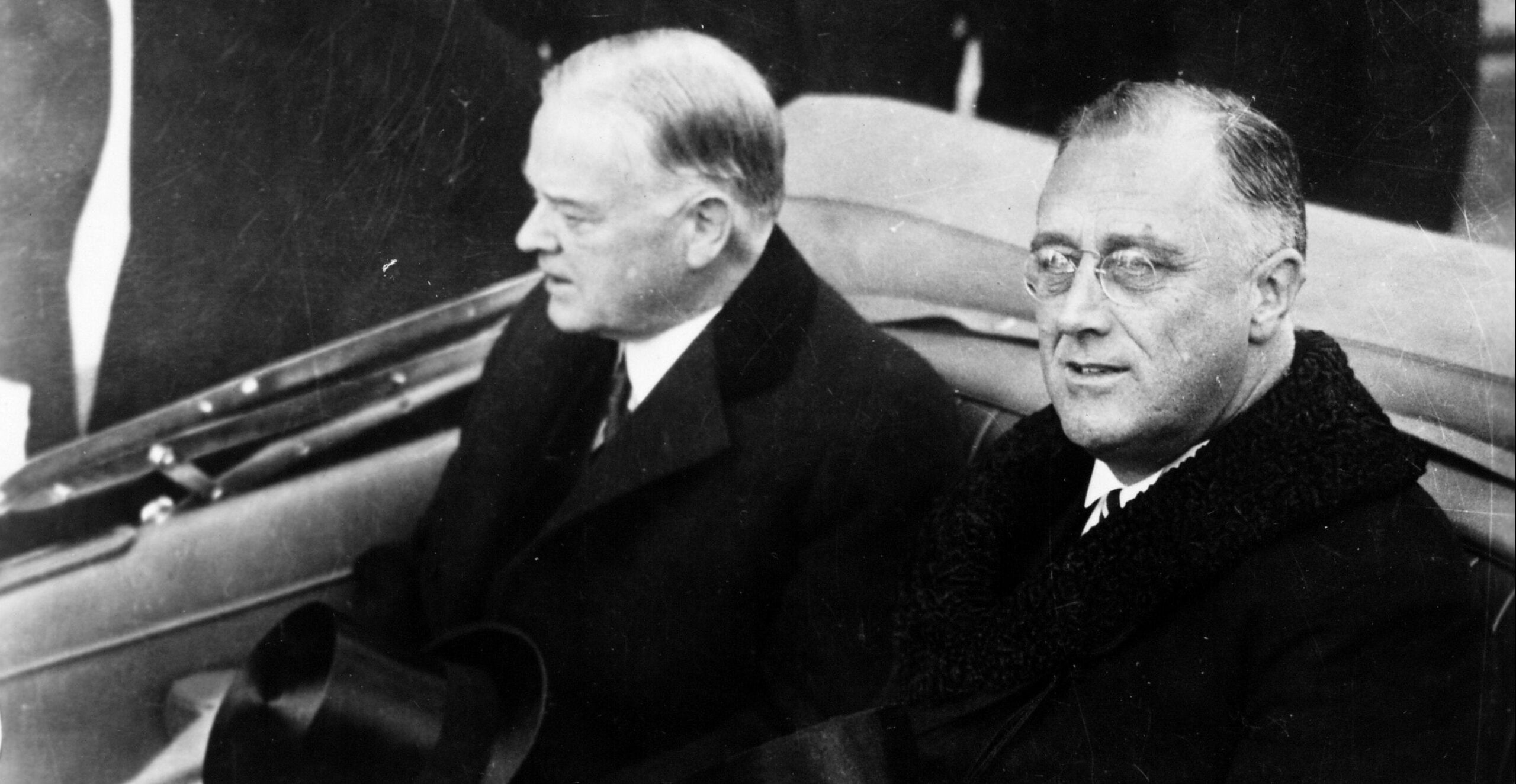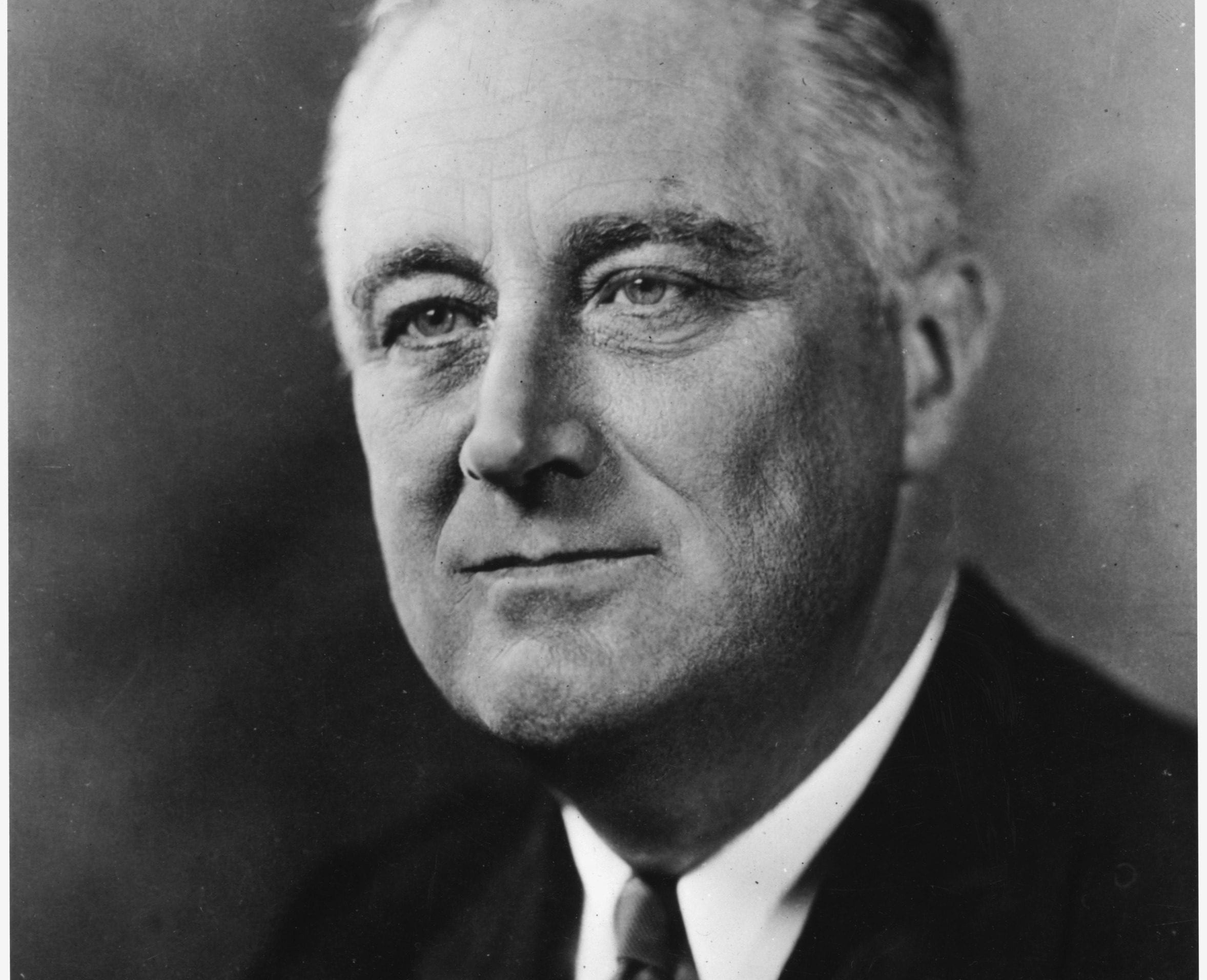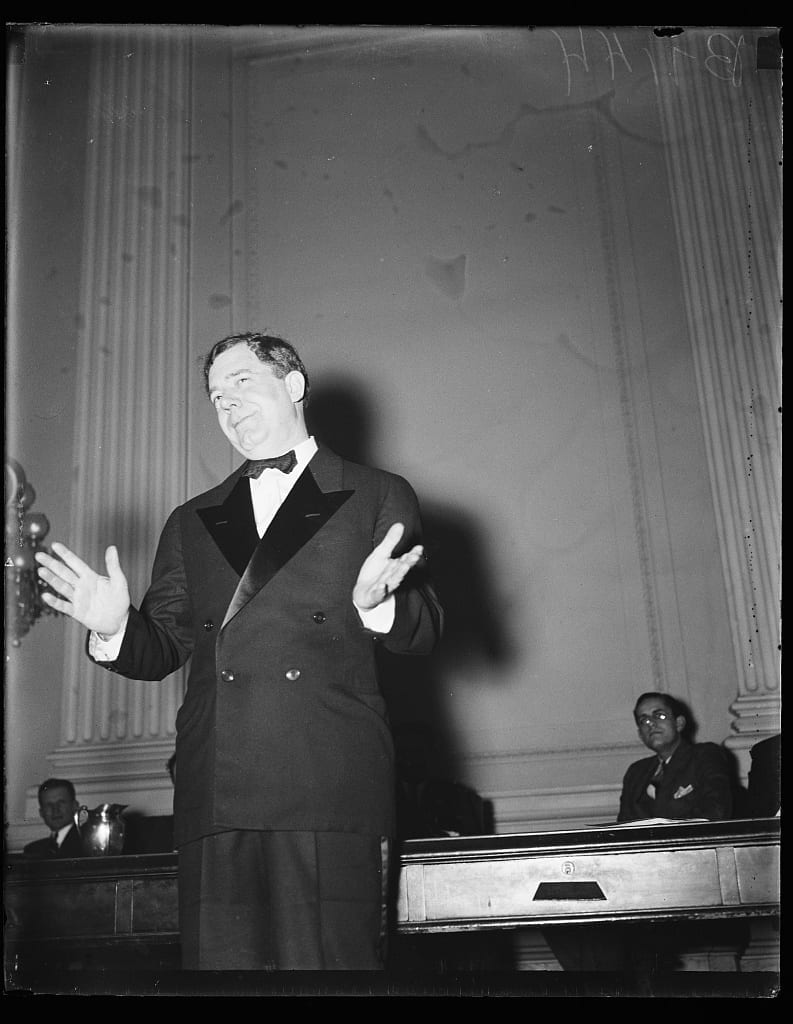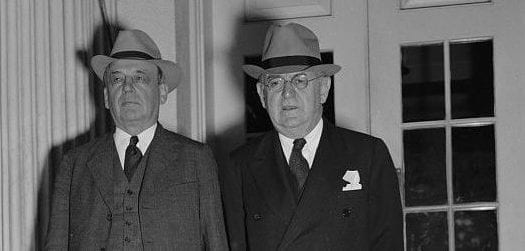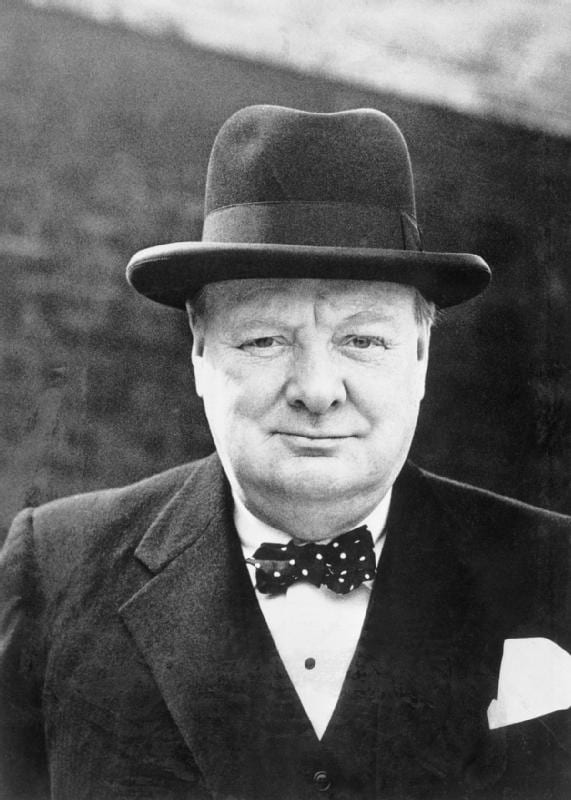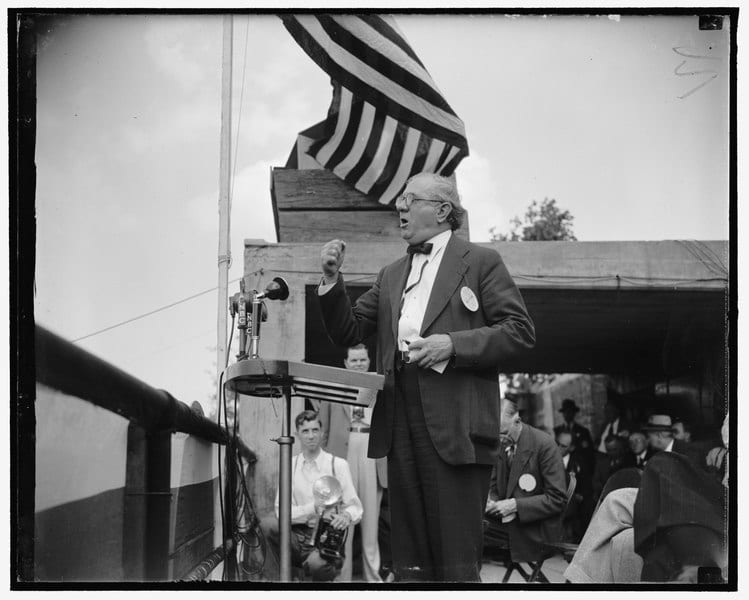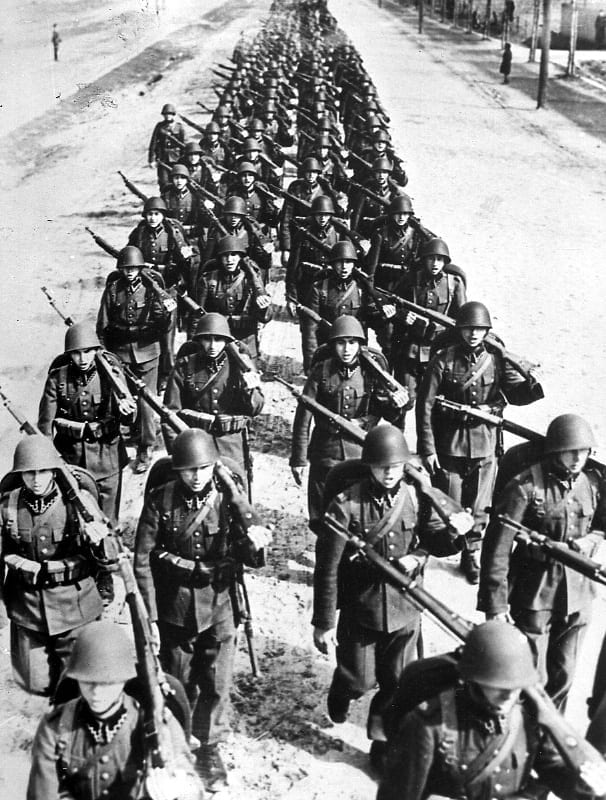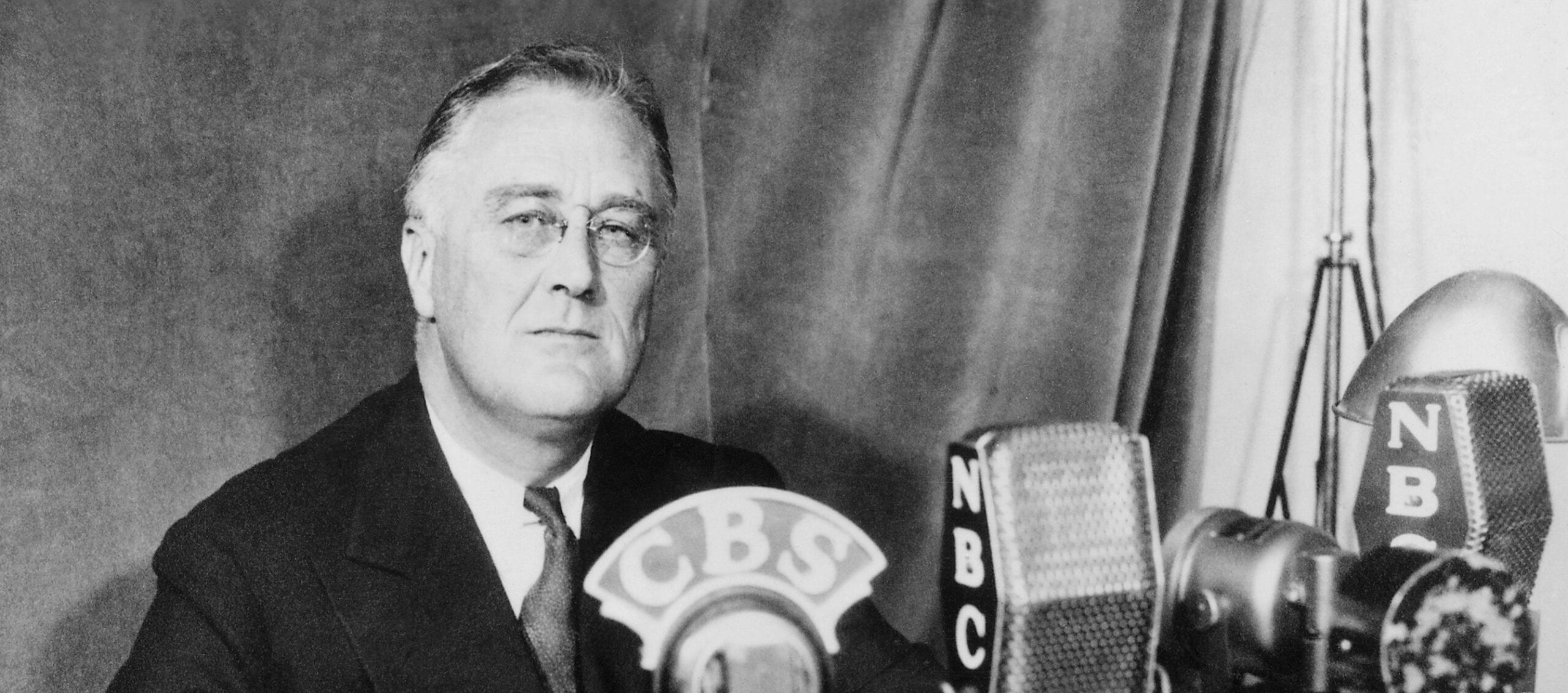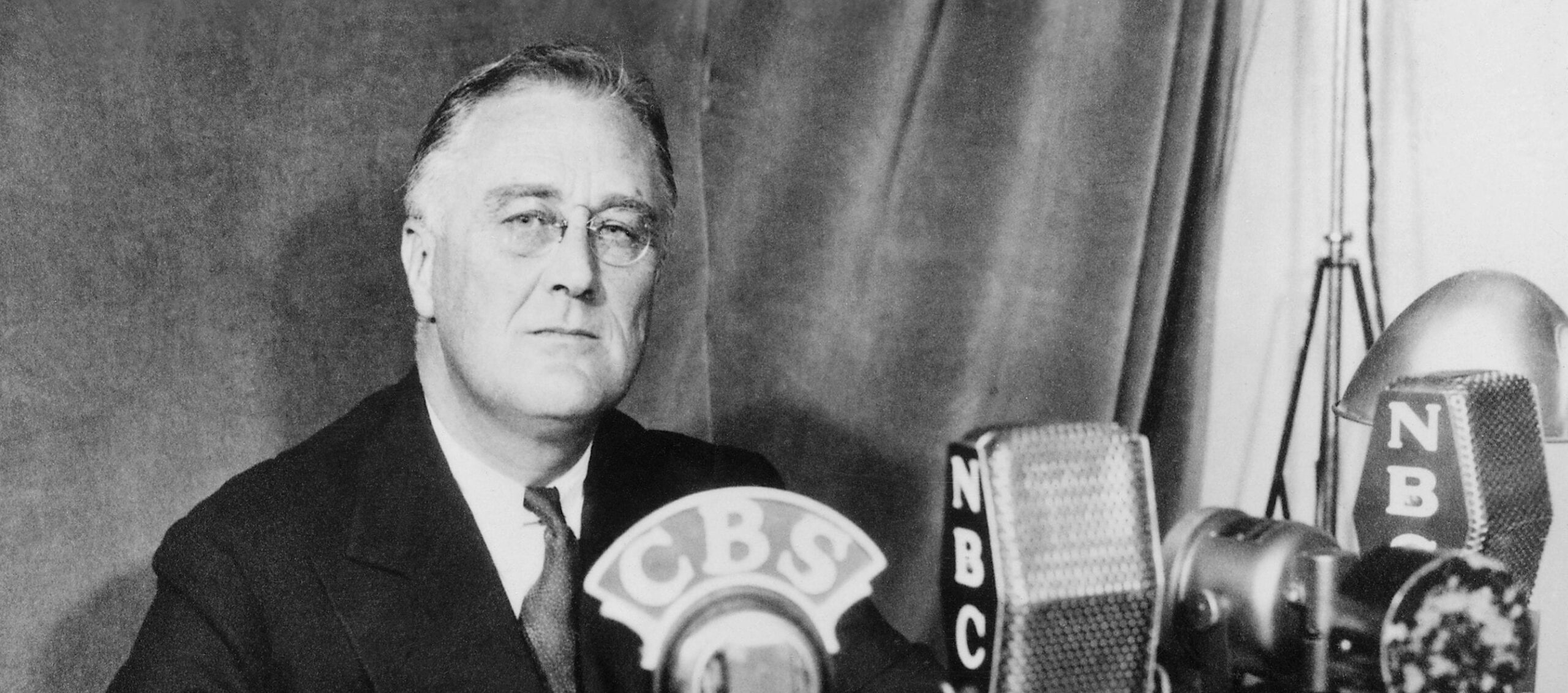

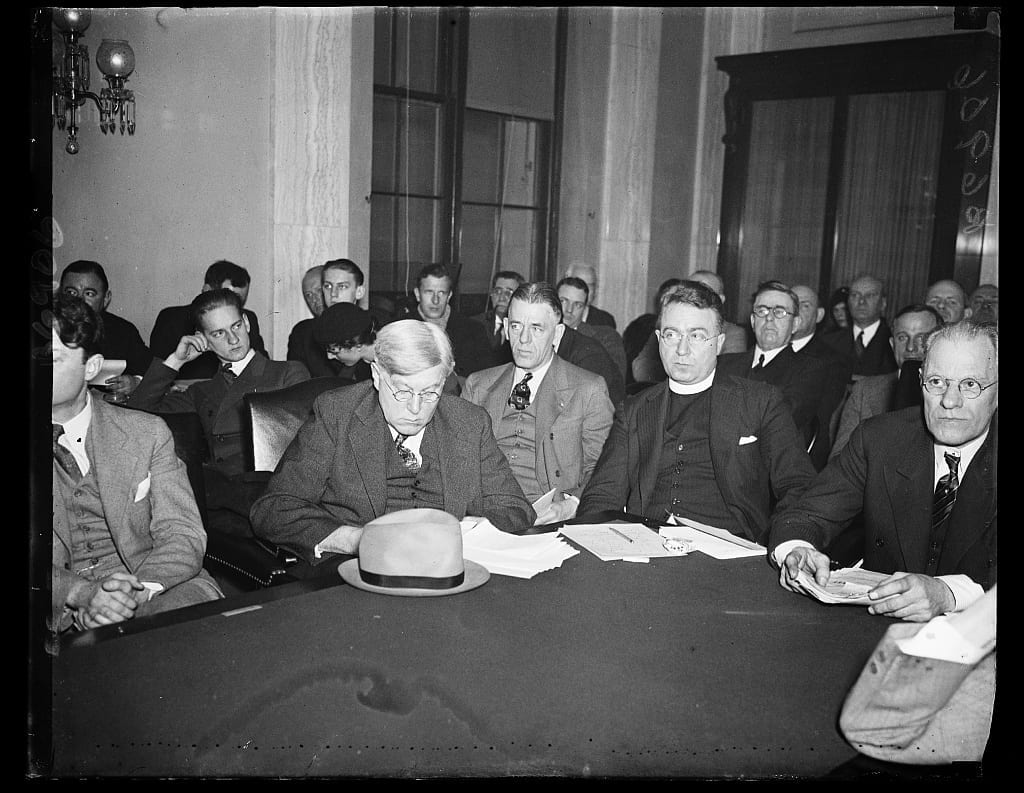
No related resources
Introduction
Father Charles Coughlin (1891–1979), a Catholic priest in Royal Oak, Michigan, won a national following through his weekly radio broadcast, the “Golden Hour of the Little Flower,” which boasted some 30 million listeners. In 1932 he enthusiastically supported Roosevelt, calling the New Deal “Christ’s deal.” However, he quickly became disillusioned with the president’s policies, accusing Roosevelt of being too friendly to bankers. He formed a new organization in 1934 called the National Union for Social Justice, which called for the monetization of silver and the nationalization of major banks and industries. He became a supporter of Huey Long (Statement on the Share Our Wealth Society (1935)), but after Long’s assassination in 1935 he embraced the third-party candidacy of Rep. William Lemke of North Dakota. During the second half of the decade he grew increasingly sympathetic to fascism, and blamed Jews for the country’s economic woes. In the following speech, broadcast on July 1, 1936, Coughlin denounced the Roosevelt administration for failing to live up to the promises of his inaugural address.
Source: Vital Speeches of the Day, Vol. II, No. 20 (July 1, 1936), pp. 613.
. . . . In the autumn of 1932, it was my privilege to address the American people on the causes of the so-called depression and upon the obvious remedies required to bring about a permanent recovery.
Those were days which witnessed a complete breakdown of the financial system under which our Western civilization had been developed. It was also evident that under this financial system there resulted a concentration of wealth and a multiplication of impoverished families. Unjust wages and unreasonable idleness were universally recognized as contradictions in an age of plenty. To my mind it was inconceivable that irrational and needless want should exist in an age of plenty.
Were there not plenty of raw materials in America? Were not our citizens and our countryside inhabited by plenty of skilled inventors, engineers, executives, workmen and farmers? At no time in the history of civilization was it possible for man to produce such an abundant supply, thanks to the benedictions of mass production machinery. At no time within the last two centuries was there such a demand on the part of our population for the thousands of good things capable of being produced in our fields and in our factories.
What was the basic cause which closed factories, which created idleness, which permitted weeds to overrun our golden fields and plowshares to rust? There was and is but one answer. Some call it lack of purchasing power. Others, viewing the problem in a more philosophic light, recognize that the financial system which was able to function in an age of scarcity was totally inadequate to operate successfully in an age of plenty.
Let me explain this statement briefly: Before the nineteenth century, the ox-cart, the spade and the crude instruments of production were handicaps to the rapid creation of real wealth.
By 1932, a new era of production had come into full bloom. It was represented by the motor car, the tractor and the power lathe, which enabled the laborer to produce wealth ten times more rapidly than was possible for his ancestors. Within the short expanse of 150 years, the problem of production had been solved, due to the ingenuity of men like Arkwright1 and his loom, Fulton2 and his steam engine, and Edison3 and his dynamo. These and a thousand other benefactors of mankind made it possible for the teeming millions of people throughout the world to transfer speedily the raw materials into the thousand necessities and conveniences which fall under the common name of wealth.
Thus, with the advent of our scientific era, with its far-flung fields, its spacious factories, its humming motors, its thundering locomotives, its highly trained mechanics, it is inconceivable how such a thing as a so-called depression should blight the lives of an entire nation when there was a plentitude of everything surrounding us, only to be withheld from us because the so-called leaders of high finance persisted in clinging to an outworn theory of privately issued money, the medium through which wealth is distributed. . . .
. . . Before the year 1932, very few persons fully realized the existence of this financial bondage.
Millions of citizens began asking the obvious questions: “Why should the farmer be forced to follow his plow at a loss?” “Why should the citizens – at least 90 percent of them – be imprisoned behind the cruel bars of want when, within their grasp, there are plenty of shoes, of clothing, of motor cars, of refrigerators, to which they are entitled?” . . .
At last, when the most brilliant minds amongst the industrialists, bankers and their kept politicians had failed to solve the cause of the needless depression, there appeared upon the scene of our national life a new champion of the people, Franklin Delano Roosevelt! He spoke golden words of hope. He intimated to the American people that the system of permitting a group of private citizens to create money, then to issue it to the government as if it were real money, then to exact payment from the entire nation through a system of taxation earned by real labor and service, was immoral. With the whip of his scorn he castigated these usurers who exploited the poor. With his eloquent tongue he lashed their financial system which devoured the homes of widows and orphans.
No man in modern times received such plaudits from the poor as did Franklin Roosevelt when he promised to drive the money-changers from the temple – the money-changers4 who had clipped the coins of wages, who had manufactured spurious money, and who had brought proud America to her knees.
March 4, 1933! I shall never forget the inaugural address, which seemed to re-echo the very words employed by Christ Himself as he actually drove the moneychangers from the temple.
The thrill that was mine was yours. Through dim clouds of the depression, this man Roosevelt was, as it were, a new savior of his people!
Oh, just a little longer shall there be needless poverty! Just another year shall there be naked backs! Just another moment shall there be dark thoughts of revolution! Never again will the chains of economic poverty bite into the hearts of simple folks, as they did in the past days of the Old Deal!
Such were our hopes in the springtime of 1933. . . .
It is not pleasant for me who coined the phrase “Roosevelt or ruin” – a phrase fashioned upon promises – to voice such passionate words. But I am constrained to admit that “Roosevelt and ruin” is the order of the day, because the moneychangers have not been driven from the temple.
My friends, I come before you tonight not to ask you to return to the Landons,5 to the Hoovers, to the Old Deal exploiters who honestly defended the dishonest system of gold standardism and rugged individualism.6 Their sun has set never to rise again.
America has turned its back definitely upon the platitudinous platforms of “rugged individualism.” . . . These Punch and Judy Republicans, whose actions and words were dominated by the ventriloquists of Wall Street, are so blind that they do not recognize, even in this perilous hour, that their gold basis and their private coinage of money have bred more radicals than did Karl Marx or Lenin. To their system . . . we must never return! . . .
On the other hand, the Democratic platform is discredited before it is published. Was there not a 1932 platform? By Mr. Roosevelt and his colleagues, was it not regarded as a solemn pledge to the people? Certainly it was! . . . [But] it was plowed under like the cotton, slaughtered like the pigs. 7. . .
Therefore, the veracity of the future upstage pledges must be judged by the echoings of the golden voice of a lost leader.
Said he, when the flag of hope was proudly unfurled on March 4, 1933:8 “Plenty is at our doorsteps, but the generous use of it languished in the very sight of the supply. . . . Primarily, this is because the rulers of the exchange of mankind’s goods have failed through their own stubbornness and their own incompetence – have admitted to their failure and abdicated. Practices of the unscrupulous money-changers stand indicted in the court of public opinion, rejected by the hearts and minds of men.”9. . .
These words, my friends, are not mine. These are the caustic, devastating words uttered by Franklin Delano Roosevelt on March 4, 1933, condemning Franklin Delano Roosevelt in November of 1936.
Alas! The temple still remains the private property of the moneychangers. The golden key has been handed over to them for safekeeping – the key which now is fashioned in the shape of a double cross! . .
- 1. Richard Arkwright (1732–1792) invented some of the first textile machinery of the industrial revolution.
- 2. Robert Fulton (1765–1815) is credited with developing the first commercial steamboat.
- 3. Among many other inventions and projects, Thomas Edison (1847–1931) developed a system of electric power generation and distribution.
- 4. Coughlin is alluding to the story of Jesus throwing the money changers out of the temple in Jerusalem. The story is in Matthew 21:12-17, Mark 11:15-19, Luke 19: 45:48, and John 2:13-16.
- 5. Alf Landon (1887–1987) was the Republican party candidate for President in 1936.
- 6. See Document 1.
- 7. Coughlin refers to measures taken by the Agricultural Adjustment Administration to stabilize dropping agricultural products by reducing supply: paying farmers to take land out of cultivation and even, in some cases, destroying crops and livestock.
- 8. March 4 1933 was the date of Roosevelt’s inauguration as President.
- 9. quoted from Roosevelt’s First Inaugural Address.
This Challenge to Liberty
October 30, 1936
Conversation-based seminars for collegial PD, one-day and multi-day seminars, graduate credit seminars (MA degree), online and in-person.
